SMART CITIES
Johannesburg: Investing in building a Global Smart City
ARE SPECIAL ECONOMIC ZONES THE KEY TO AFRICAN GROWTH?
COUNTRY PROFILES: THE GAMBIA & TANZANIA
MARITIME
Entrepreneurs in the Blue Economy are tackling waste and generating energy ACCELERATING DELIVERY OF AFFORDABLE HOUSING IN AFRICA
Innovative building technologies can create more housing solutions in less time than the conventional method, says RALI MAMPEULE , CEO of the African Housing and Infrastructure Fund (AHIF).
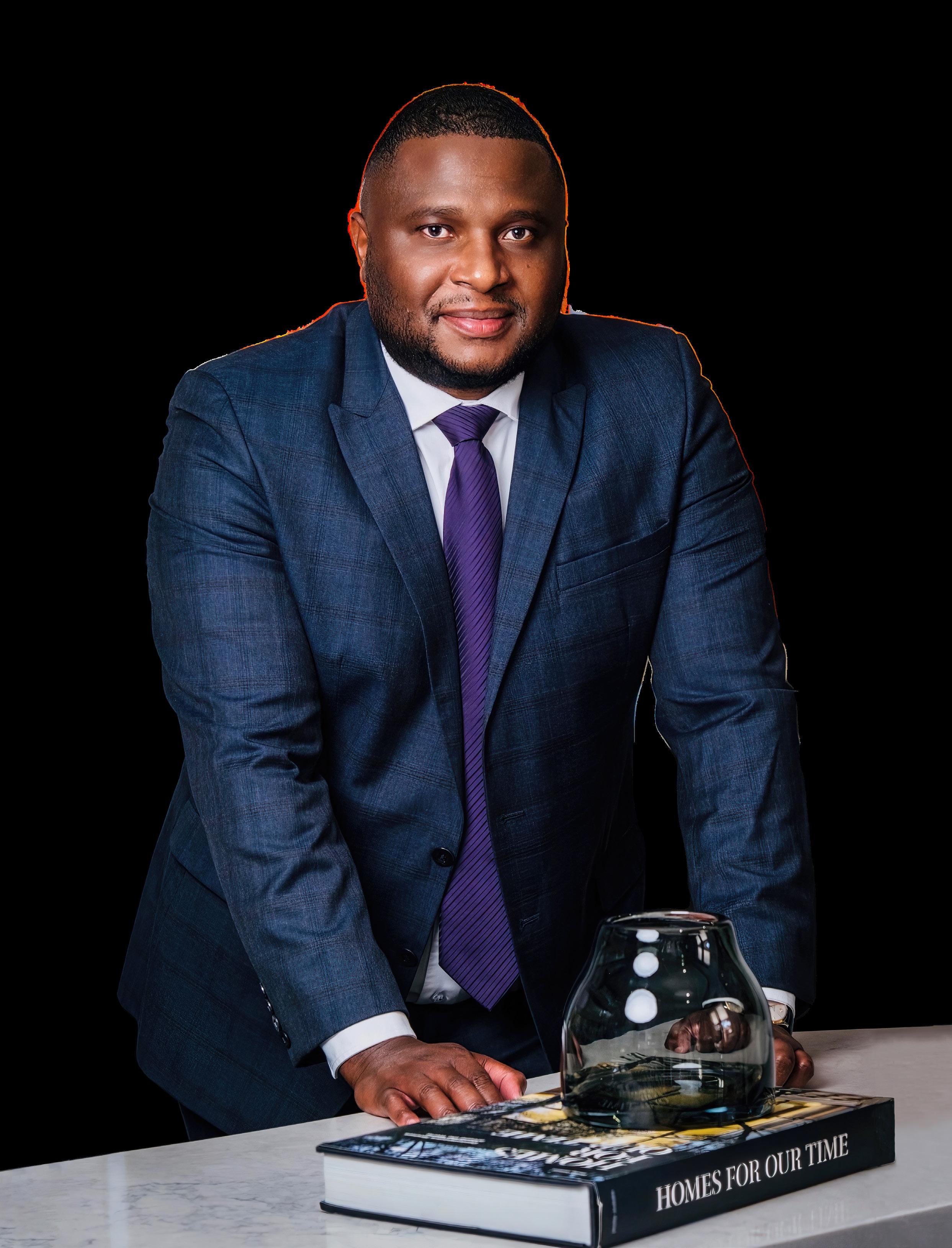
ENTREPRENEURS
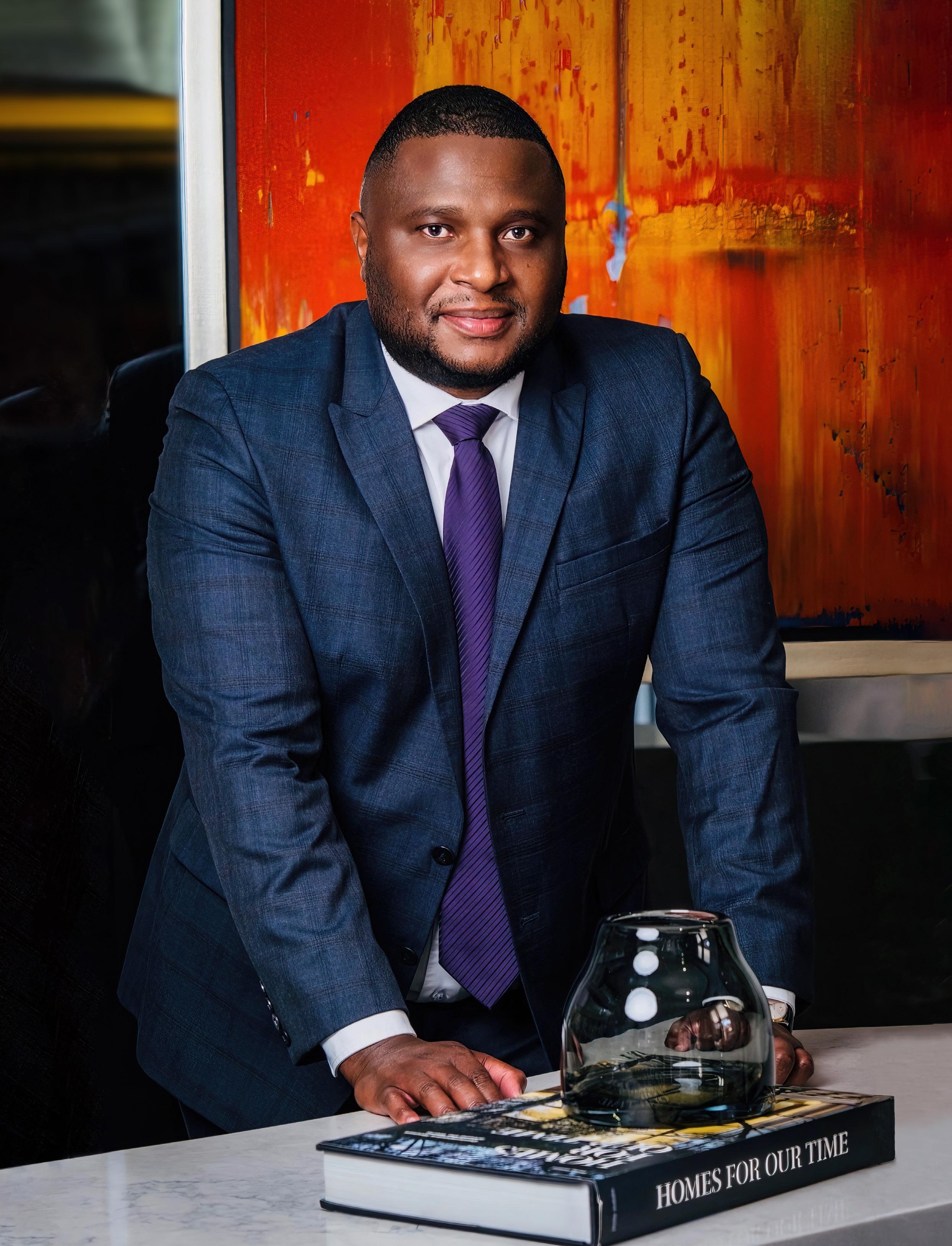
Future Fit –The year to be acknowledged
The Gateway to learning is infinite… Get ahead of the curve and stand out from amongst the crowd through Executive Education at Wits Business School. Develop cutting-edge skills for revolutionary leaders.

2023
the change you wish to see! Join WBS – Executive Education Today!
Be



EXECUTIVE EDUCATION Leadership & coaching Executive Education Management Development C-Suite Specialised Courses Lead | Change | Transform 2 St Davids Place, Parktown, Johannesburg www.wbs.ac.za
SAVE TIME – REDUCE COSTS & REGISTER ONLINE NOW
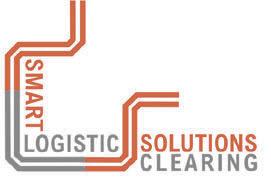



Real Time 24/7 online access to:
• Multi language.

• Quote effective Certification Cost Calculator.
• Application submission with REAL TIME status updates on certification progress.




• DATA captured once - is thereafter selected by means of a drop down menu for future applications.





• Globally consolidate, manage, maintain and retain your live record of all your Certified DRC Imports & Exports with a Validated Certification history from Day 1.








USER FRIENDLY | CONFIDENTIAL | EFFICIENT | SECURE









CCS Kinshasa DRC certification@ccs.com Invesco www.ogefreminvesco.com Contribuinte: 5401124112 Sociedade Industrial e Comercial, Limitada Sincron, LDA www.ogefremsincron.com SLS www.ogefremsls.com ZAMBIA www.transcom-services.com















































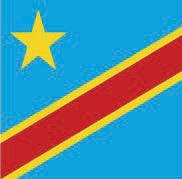



















































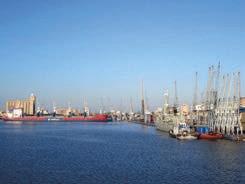














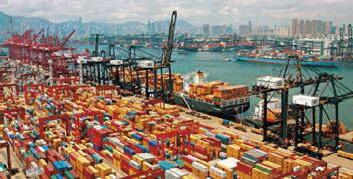

















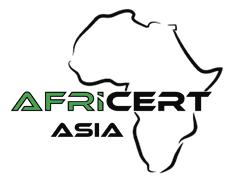
ConnexAfrica www.connexafricatranscom.com Sin Chiao Singapore www.ogefremsinchiao.com www.transcomltd.com Africert Asia feri@africertasia.com
Journal of African Business

A unique guide to business and investment in Africa.
Welcome to The Journal of African Business. Since the inaugural issue was published as an annual in 2020, the quarterly format has been adopted, giving our team more opportunities to bring to readers up-to-date information and opinions and offer our clients increased exposure at specific times of the year.
We cover a broad range of topics, ranging from energy and mining to tourism and skills development. A wide-ranging interview in this issue with a visionary entrepreneur gives a welcome insight into how the private sector can be deployed to solve issues that go to the heart of social problems, in this instance, affordable housing. Rali Mampeule, the founder and CEO of the pioneering South African Housing and Infrastructure Fund (SAHIF), reveals his plans for expansion into other parts of Africa through the African Housing and Infrastructure Fund (AHIF). A key problem in many African cities is the preparation of land for development and this is where Mampeule’s business model fills the gap between the hopes and the realities.
Related to urban development is the article that lays out the vision of one of the continent’s great cities to create a smarter city. City of Johannesburg Project Manager Lawrence Boya looks at the totality of the challenge and outlines steps already taken towards a smarter future, but notes that funding and funding partnerships will be key to achieving sustainable progress.

Special Economic Zones have been in Africa since 1970 but there has been a great deal of new thinking about the role that these zones can play in bolstering economic growth and promoting exports.

An article explores the chief motivations for the growth of this particular policy intervention and notes that more zones and organisations representing these zones are aiming to work together, not only on a continental level but through the United Nations as well.
Executive education can boost the earnings of graduates of Master of Business Administration courses, but can those post-graduate programmes also respond to and equip students with the tools to tackle African challenges? An article provided by MBA.co.za tackles those questions.


African air travel is covered in an article by Wesgro, centred on the AviaDev Conference which took place in Kenya. The importance of being properly covered by insurance for extreme weather conditions is the subject of two case studies by the African Risk Capacity Limited, a financial affiliate of the African Risk Capacity Group, a specialised agency of the African Union. Finally, OceanHub Africa has exciting news about the range of sea-based solutions that small businesses are coming up with to treat waste and generate energy.
Global African Network is a proudly African company which has been producing region-specific business and investment guides since 2004, including South African Business and Nigerian Business, in addition to its online investment promotion platform www.globalafricanetwork.com.











 JOHN YOUNG
Editor, Journal of African Business
JOHN YOUNG
Editor, Journal of African Business











Email: john.young@gan.co.za
Editor: John Young


Publishing director: Chris Whales
Managing director: Clive During

Online editor: Christoff Scholtz
Design: Salmah Brown. Production: Yonella Ncaba
Ad sales: Venesia Fowler, Tennyson Naidoo, Sam Oliver, Tahlia Wyngaard, Gavin van der Merwe, Graeme February, Shiko Diala, Gabriel Venter and Vanessa Wallace
Administration & accounts: Charlene Steynberg, Kathy Wootton, Sharon Angus-Leppan
Distribution & circulation manager: Edward MacDonald










FOREWORD
The Journal of African Business is published by Global Africa Network Media (Pty) Ltd Company Registration No: 2004/004982/07 Directors: Clive During, Chris Whales Physical address: 28 Main Road, Rondebosch 7700 Postal: PO Box 292, Newlands 7701 Tel: +27 21 657 6200 | Email: info@gan.co.za Website: www.globalafricanetwork.com
All
Printing: FA Print Member of the Audit Bureau of Circulations
No portion of this book may be reproduced without written consent of the copyright owner. The opinions expressed are not necessarily those of The Journal of African Business magazine, nor the publisher, none of whom accept liability of any nature arising out of, or in connection with, the contents of this publication. The publishers would like to express thanks to those who support this publication by their submission of articles and with their advertising.
rights reserved.
Operators! opportunities available. delegate. Tel: 011 452 4991 AFRICAN BUSINESS SMART CITIES Johannesburg: Investing in building a Global Smart City ARE SPECIAL ECONOMIC ZONES THE KEY TO AFRICAN GROWTH? COUNTRY PROFILES: THE GAMBIA & TANZANIA MARITIME ENTREPRENEURS Entrepreneurs in the Blue Economy are tackling waste and generating energy ACCELERATING DELIVERY OF AFFORDABLE HOUSING IN AFRICA Innovative building technologies can create more housing solutions in less time than the conventional method, says RALI MAMPEULE CEO of the African Housing and Infrastructure Fund (AHIF). 4
4 6 8 14 16 18 26 30 34 36 38 40 43
FOREWORD
From the editor’s desk
NEWS FROM ALL AROUND AFRICA

Recent investments, expansions and milestones.
AFFORDABLE HOUSING SOLUTIONS FOR AFRICA
There is an urgent need to accelerate the delivery of affordable housing, says RALI MAMPEULE, CEO of the African Housing and Infrastructure Fund (AHIF).
INVESTING IN BUILDING A GLOBAL SMART CITY – JOHANNESBURG

The vision of Johannesburg becoming a “City of Innovation in Africa” was outlined by Lawrence Boya at the African Smart Cities Summit in June 2023.
DRIVING DIGITAL INCLUSION
Convergence Partners Digital Infrastructure Fund beat its target and closed at $296-million in 2023.
SOUTH AFRICAN MBAS: A MAGNET FOR AFRICAN STUDENTS
The resilience and complex problem-solving skills of South Africa’s MBA graduates provide the edge. This article was first published on MBA.co.za.

CAPE TOWN AIR ACCESS DRIVES AFRICAN ROUTE DEVELOPMENT
The AviaDev Africa 2023 event confirmed that Cape Town’s links to the rest of Africa are growing rapidly.

AFRICAN MOTORBIKES ARE GOING ELECTRIC

A new report by Powering Renewable Energy Opportunities highlights the innovations that are super-charging this sector.
SPECIAL ECONOMIC ZONES
Are Special Economic Zones the key to African growth? By John Young.
INSURANCE PAYOUTS UNDERLINE CLIMATE CHANGE CHALLENGES
Two West African countries have received insurance payouts from the African Risk Capacity (ARC) Group.
MARITIME ENTREPRENEURS
OceanHub Africa supports entrepreneurs in the Blue Economy who are tackling waste and generating energy.

GLOBAL FLEXIBILITY IS BENEFITING AFRICA’S GAS SECTOR
NJ Ayuk, Executive Chairman, African Energy Chamber, reports on new projects and prospects in new locations.
COUNTRY PROFILES:
CONTENTS Contents The Journal of African Business
The Gambia and Tanzania 5
NEWS FROM ALL AROUND AFRICA
VOLKSWAGEN IS MOVING ON
Volkswagen has started assembling cars in Ghana. When Volkswagen took over the responsibilities of the assembly facility in early 2023 from its licensed importer, Universal Motors Limited, the company officially launched its fourth African site, after South Africa, Rwanda and Kenya. The T-Cross model is fully assembled in Ghana.
Volkswagen has a presence in 17 countries in Sub-Saharan Africa where it sells passenger and commercial vehicles through licensed importers. Innovation has been the name of the game in Rwanda, where car ownership figures are low. In response to that reality, the company has put its focus into ride-sharing with a difference through Move by Volkswagen. Within that branding, Move Ride offers the conventional app-based service for individuals but Move Share is designed as a form of fleet management for businesses. A company can sign up and have access to a managed fleet of


Volkswagen vehicles. In addition, Volkswagen has won a tender to operate at the Kigali International Airport, a lucrative market. Previously, one taxi association had been the only provider of services to and from the airport. Another innovation has seen Volkswagen work with Siemens in introducing electric vehicles to Rwanda through the Move by Volkswagen fleet.
In May 2023, Martina Biene, Chairperson and Managing Director of Volkswagen Group South Africa, commented, “Rwanda has been the success story of our growth plans in Sub-Saharan Africa. It is also the innovation hub of our sustainable mobility lighthouse projects on the continent. Our mobility solutions services business, which includes ride hailing and corporate car sharing, broke even last year. Rwanda was also the first country in Sub-Saharan Africa to launch a Volkswagen electric vehicle with the e-Golfs.”
DUBAI INTERNATIONAL CHAMBER OPENS FIFTH AFRICAN OFFICE


Dubai International Chamber has opened an office in Johannesburg. Five of the chamber’s 21 international offices are in Africa. The Dubai International Chamber is one of the three chambers operating under Dubai Chambers which seeks to promote trade to and from the United Arab Emirates (UAE). The South African office follows the establishment of offices in Kenya, Ethiopia, Mozambique and Ghana. The total value of non-oil trade between South Africa and Dubai achieved year-on-year growth of 11.5% in 2022, reaching AED22.3-billion. The UAE dirham, or AED, is the currency of the UAE and is equivalent to roughly US 27 cents. The UAE is the largest trading country and top host of foreign direct investment (FDI) in the MENA region, while South Africa is the UAE’s top trading partner on the African continent and the
second-largest FDI host in Sub-Saharan Africa. The initiative supports Dubai Chambers’ strategic goals of attracting international business and investment to Dubai and driving the global expansion of its members. The new office is set to strengthen the already robust commercial relationship between the UAE and South Africa by identifying and capitalising on new trade and investment opportunities across a range of key sectors including precious stones and metals, agriculture, logistics and mining. Dubai’s strategic location and world-class logistics facilities position make it an attractive destination as a trade hub for African companies with global ambitions.
Recent investments, expansions and milestones.
Credit: Volkswagen AG
6
TATA INTERNATIONAL AFRICA EXPANDS ITS FOOTPRINT

At a groundbreaking ceremony at Kibaha near Dar es Salaam in April 2023, the first steps were taken towards the creation of a multi-purpose venue that will stretch over five hectares of land. Facilities will include a shop floor for tractor assembly, a bonded warehouse for commercial vehicles, agricultural and construction equipment, a facility for commercial vehicle body building, pre-delivery inspection areas and a wash bay for the vehicles. The Kibaha project site is in the Kibaha-Pwani Region at Machinjioni Mtaa, Tangini Ward, in the TAMCO Industrial Estate of the National Development Corporation (NDC). Scheduled to be completed by October 2024, the project is expected to create new business opportunities and stimulate economic growth in the region. The event was attended by the High Commissioner of India in Tanzania, Hon Binaya Srikanta Pradhan, and the Director Strategic Projects, NDC, Alfred Mapunda, who were the guests of honour. Len Brand, CEO of Tata International Africa, said at the event: “The groundbreaking ceremony is an example
Plans announced in 2021 by The Coca-Cola Company to sell a portion of its shareholding in Coca-Cola Beverages Africa (CCBA) via an initial public offering have been put on hold. “Macroeconomic conditions” were behind the decision to delay the IPO, but the company is still intending to create an Africafocused bottler trading as an independent public company.
of a long and productive partnership between Tata International Africa and the Tanzanian National Development Corporation in the Kibaha area.” The Tata Group, which first started operating in Africa in 1977 as Tata Zambia, now has a presence in 12 African countries.

A press release from the company explained the reason for selling its shares in CCBA as follows: “The decision is in line with The Coca-Cola Company’s objective of focusing its resources on building consumer-loved brands and innovation.”
CCBA is the eighth-largest Coca-Cola bottling partner in the world by revenue and the largest on the continent. It accounts for over 40% of all Coca-Cola products sold in Africa by volume. With over 17 000 employees in Africa, CCBA services more than 600 000 customers with many international and local brands. The group was formed in July 2016 after the successful combination of the southern and east Africa bottling operations of the non-alcoholic ready-to-drink beverages businesses of The Coca-Cola Company, SABMiller plc and Gutsche Family Investments. CCBA shareholders are currently: The Coca-Cola Company 66.5% and Gutsche Family Investments 33.5%. CCBA operates in 14 countries, including its six key markets of South
Africa, Kenya, Ethiopia, Uganda, Mozambique and Namibia, as well as Tanzania, Botswana, Ghana, Zambia, the islands of Comoros and Mayotte, Eswatini and Lesotho. RAIN is The Coca-Cola Foundation’s flagship African community programme contributing to helping Africa achieve the United Nations’ Sustainable Development Goals on clean water and sanitation access. Managed by the Global Environment & Technology Foundation, RAIN aims to improve the lives of people in Africa through Water, Sanitation and Hygiene (WASH) programmes and other water-based initiatives. Since 2009, RAIN has worked to address specific community needs – deploying a vast network of partners including governments, the private sector and civil society. The global Water Stewardship Strategy is carried out in South Africa by CCBA through a variety of community programmes, pictured, which deliver concrete results and make a practical difference.
THE INAUGURAL AUSTRALIA AFRICA BUSINESS SUMMIT IS TO BE HELD IN 2023
Melbourne will host the first Australia Africa Business Summit from 10-12 October 2023. Presented by the Australia Africa Chamber of Commerce (AACC), speakers will include Senator the Hon Don Farrell, Minister for Trade and Tourism, and Wamkele Keabetswe Mene, Secretary General, Africa
Continental Free Trade Area.

Under the heading “New bridges. Creating connections”, the summit aims to bring Africa to the forefront of the Australian trade and investment focus.
The two-day event will take place at the Melbourne Convention and Exhibition Centre where delegates will have access to C-suite decision-makers, senior executives and international trade experts from a wide range of sectors including agribusiness, energy, education, technology,

healthcare, mining and mining equipment, technology and services (METS) sector.

President of the AACC, Mr Duncan Harris said that by inviting business leaders, governments, policymakers, investors and entrepreneurs from both continents, the summit is designed to facilitate in-depth discussion about opportunities relating to bilateral and multilateral trade to provide practical pathways for others seeking to enter these markets.
“The theme of the summit is to build new bridges and create connections between Australia and African government and businesses with significant economic benefits for both regions,” said Mr Harris. Website: www.australiaafricabusinesssummit.com
COCA‑COLA BEVERAGES AFRICA (CCBA) LISTING ON HOLD
7 NEWS
Credit: Ayush Jain on Unsplash
ACCELERATING THE DELIVERY OF AFFORDABLE
Rali Mampeule is passionate about bringing housing within the reach of residents of African cities. The launch of the African Housing and Infrastructure Fund heralds a new era of expansion for a model of making serviced land available that has worked extremely well in South Africa.

A housing model is being rolled out that will see affordable and integrated developmental cities developed around the continent.
That’s the dream of Rali Mampeule, founder and Chief Executive Officer of the African Housing and Infrastructure Fund (AHIF). This is not a dream that exists in the clouds, this is a dream based on what this successful entrepreneur has already achieved with an innovative solution to a shortage of good-quality affordable housing. As a result of this far-sighted vision, thousands of plots of land in South Africa now have family homes on them.
And the dream is not limited to bricks and mortar either. Rali and his team have been cooperating with scientists and researchers to work on and develop the latest technology to fast-forward the process of developing and building homes.

The essence of the model is that Rali and his team buy land and prepare it for development. Given that in South Africa, many regional authorities were returning unused funding meant for the development of housing to the National Treasury, Rali set out to prise open that bottleneck of funding and development that was choking
To deal with what he calls South Africa’s “twomillion-unit housing crisis” Rali established the South African Housing and Infrastructure Fund (SAHIF) as
8
a means of tackling the challenge of affordable housing in South Africa. The African Housing and Infrastructure Fund, to be launched in 2023, is the continental vehicle for taking on the same challenge.
Says Rali, “We thought we could come up with a plan to accelerate the delivery of affordable housing by buying land and getting it ready for development. Then we put it out on the market for people to buy.”
THE MODEL
As a young man working as an estate agent, Rali was able to observe the processes of land development at first hand. What he saw was a lack of understanding of the complexity of the process. “You don’t get a billion-rand today and tomorrow you can start building on the land,” he notes.
The town planning, permits and permissions might take two years and this was not properly understood. He saw a gap and so began the process of buying land, going through all the processes and installing services to make it ready for development.
The baseline of the model is outlined by Rali as, “We accelerate the delivery of affordable housing by getting the land ready.”
Normally, the fund will sell the land once it is developed. Buyers could be listed companies, government agencies, government itself or private developers. “They can also help in accelerating the delivery of affordable housing,” says Rali.
There are cases where one of the group’s subsidiaries, Padima Property Development, might buy a tranche of land from SAHIF and undertake a development by developing the top structure, but the general rule is for SAHIF to buy and prepare the land with the intention of selling to another entity. As Rali puts it, “Our core business is buying land and installing services.”
“We have done a lot of work with the National Department of Human Settlements and with the Housing Development Agency,” says Rali. There have also been collaborations with listed companies and at Waterfall City, where SAHIF was involved with the commercial development of Waterfall Point.
A listed company might want to do a student village or a commercial development, depending on what the zoning for the area allows. The land can be an integrated development that has opportunities for commercial space, residential or perhaps a retirement village. “The bulk of it is for affordable housing,” notes Rali, but he stresses that schools and social amenities must also be part of the package. “It must become a sustainable development.”
A vital aspect of the process is the planning framework of the relevant city. “We always work within the spatial development guidelines of the city,” says Rali.
SAHIF will do various reports such as geotechnical, traffic impact and social impact studies in order to be better prepared and to pass on relevant information to government. If the reports find that a hospital is needed, this conclusion is passed on. The idea is to work hand in hand with government, using the spatial development framework as a guideline.
Bulk services are not always available because the local authority might not have the capacity. In those cases, SAHIF aims to work with government by installing the services and then recouping its expenditure through rebates over a period of time. This approach allows the development to get started without the delay of waiting for services to be installed.
Rali sums up this approach as follows: “The advantage of this model is that it accelerates the delivery of affordable housing. We help institutions so that they don’t have to return their budgets and residents benefit by being able to build units on the land that has been prepared.
“We are an enabler of affordable housing because we are on the ground. We install the services and we go through the whole land banking process. We can do it at a speed because we are focussed and that’s what we do.”
REMARKABLE PROGESS
The SAHIF model has run for four years in South Africa and delivered just over 68 000 land opportunities or serviced stands to South Africans.
SAHIF IN NUMBERS
• R15.3-billion: pipeline to be realised over three years
• R1.7-billion: land value invested by shareholders
• 100% black owned and managed
• 108 160 stands expected to be realised through pipeline leading to 424 840 South Africans being positively impacted
• Five provinces: strong geographic diversification throughout South Africa

SAHIF management has a strong history of successful land acquisition and disposal. 1 476ha of land previously acquired was sold in a period of 24 months. This would result in a yield of approximately 73 800 units being developed from this land (not all of the land was sold as serviced land). These transactions had a positive impact in changing the lives of 295 200 South Africans, calculated on the basis of an average of four people per LSM 1-4 household.
Rali puts this achievement in human terms. “If you times that by four because in each house you can estimate four people staying there you can imagine the impact that we are having in terms of the delivery of affordable housing in the country.”
Angel investors helped to get the fund off the ground and some family businesses also invested. By selling off a sizeable quantity of land, enough liquidity was created for the fund to now be self-funding in South Africa. Rali reports, “The fund is able to buy its own land and resell it without the need to open more rounds for investors.
“Our institutional investors and our family offices are privately owned so they are not listed. We also have the MIT and the Baphele Investment Trust which invested a lot of money into SAHIF. Most of our other shareholders are private investors who would put in money for a certain piece of land. When we sell, they are able to get back that investment and reinvest again if they want to.”
9 AFFORDABLE HOUSING
ENTREPRENEURIAL BEGINNINGS
The first project undertaken by SAHIF was in Ekurhuleni, east of Johannesburg. Although Rali was born in Tzaneen in Limpopo, he spent many years in nearby Daveyton as a boy so there was added excitement for the property developer to be working on a project in the area where he grew up. A 568ha piece of land yielded close to 18 000 housing opportunities.
Rali’s entrepreneurial spirit found its first expression in fast food while he was studying for his part-time undergraduate degree through Unisa. “I started my first business by selling boerewors rolls at Kyalami in Midrand. I have always been eager to become an entrepreneur. Entrepreneurship is not something that you learn. It is almost like hunting; you go out there and you find ways to get things done. You ask questions and then you build a business that makes sense.”
Rali had the good fortune to meet a man who was willing to give him opportunities, Charles Everett. Rali’s 23-year journey in property had begun. First, as an assistant estate agent and then Rali bought a franchise and was able to pay that off within two years.
Rali takes up the story: “I partnered with my brother and the CEO of Chas Everett franchises, Barry Davies, to help me with working capital. Two years later I had built a business in Midrand called Chas Everett Midrand. We managed to sell a development for more than R26-million and we had made ourselves a commission of about R6-million, which we used to pay off the franchise and buy out the partners that I had brought into the business. I continued to invest in land and the land appreciated in value. The value of some land in Ekurhuleni in particular rose. That’s where our family business started.”
AFRICAN HOUSING AND INFRASTRUCTURE FUND
The African Housing and Infrastructure Fund (AHIF) will be launched in Kenya in September 2023 with an initial investment target of $2-billion.
The move by large numbers of people from rural areas to urban areas is a global phenomenon, and Africa is experiencing this urbanisation in every part of the continent. Rali is solution-focussed: “We need to address that situation by building new cities around the continent.”

This is what AHIF sets out to do. Using the SAHIF model that has worked so well in South Africa, Rali says, “Firstly, we are going to be looking at Tanzania, Uganda, Kenya and Rwanda in East Africa. SADC is important for us as we are based in South Africa so we are also looking at Zimbabwe, Namibia, Zambia and some parts of Lesotho. We feel that we will be able to penetrate that and at a later stage we will look at Botswana as well.”
Rali has been visiting various embassies in preparation for trips to other African countries and will meet the mayors of some Rwandan cities when he visits Kigali. There will also be a meeting with the president of Rwanda, Paul Kagame. Rali is determined that the AHIF must make a big difference on the continent. “We are an impact investor so whatever business we get involved in must make a difference in the community,” he stresses. The impact will be made in several ways.
“Firstly, by creating jobs,” says Rali. Also, in terms of bringing in new blood into the real estate sector and empowering young people, women and youth. He wants to make sure that they have “new opportunities that they never used to have”. Rali firmly believes that the construction industry can help regional economies to recover. “We are here to stay. We want to work with institutions, private investors and family offices in making sure that we can create job opportunities by using innovative construction.”
BUILDING AN ECOSYSTEM
As the affordable housing model is growing and expanding into other areas of Africa, so the offering is expanding in diversity and scope. Just as SAHIF has invested in fibre businesses in South Africa to enable it to service the land it buys, so AHIF will invest in fibre in other parts of Africa, bringing connectivity to some areas that are under-serviced at the moment.
And Rali’s thinking goes beyond land, housing and the Internet. He wants to be able to help people solve a range of issues such as home-loan financing and energy availability and he is conceptualising what he calls an “ecosystem” to tackle them.
On home loans: “We are also aware that there are some challenges in terms of funding of home loans. Most of the market that we are targeting is battling to get home loans. Traditional home loans are declined for various reasons where you find that maybe the people are small-business owners and the bank’s criteria doesn’t work the same way. We want to create a product within the same fund where we are able to give people what we call incremental funding for them to build their houses slowly like it used to be done in the old days.”
On energy: “We realise that there are issues with energy in some of the countries that we’re going to be investing in. Therefore, we need to invest into renewable energies for electricity and obviously some social amenities so that we have facilities like hospitals.”
The ecosystem begins with the land, extends to the financing of a structure, the building of a structure and the energy needed to power that structure. “Before that,” says Rali, “we install fibre in their units so that they are connected and lastly, we are going to make sure that they are able to work and play in the same area so we will invest in retail centres and create work opportunities in the same way that we are doing in this country.
“Essentially, we will be building new cities around the continent that are integrated developmental cities. In South Africa we have not built a lot of new cities since 1994, so we want to be in that space of building new cities. There is a lot of demand in terms of housing where people are moving from rural areas into urban areas.”
NEW TECHNOLOGIES
To solve long-standing problems, new solutions are needed, according to Rali. As he says, “If you’re going to use the same method to solve the problem you are not going to be able to make a big difference.
10
“We looked around and said what other methodology and innovative construction methodology can we come up with for us to be able to accelerate delivery of affordable housing.”

One of the things on the agenda is to build houses using 3D printing. In January 2023 a typical RDP house was put together in a day in a project undertaken by the National Department of Science and Innovation (DSI) and the Sustainable Materials and Construction Technologies Research Centre (SMaCT). Rali is chairman of SMaCT, which is a unit within the University of Johannesburg’s School of Engineering and the Built Environment. The plan is to use 3D printing in South Africa first before rolling the technology out across the continent. That drive has started. Says Rali, “AHIF is donating a 3D printing centre for youth development as a part of introducing our technology in Rwanda.”
“We have partnered with a Dutch 3D printing manufacturing company called CyBe,” reports Rali. “We are excited that we are going to be using those machines to print houses around the SADC region as well.”
Rali describes this option as “new technology for this generation”. He believes that it is something that is going to become the future, not only for affordable housing, but also for high-end properties. “It’s an exciting time for us as our partnership with CyBe can accelerate that delivery of affordable housing in South Africa,” he adds.
Rather than worry about technology pushing people out of jobs, Rali notes that previously under-employed sections of the population such as young people and women will have more opportunities in the sector than has been the case in the past.
“We are studying the impact of this technology on jobs,” he notes. “Young people are going to be interested in this type of technology and we are going to be able to bring in women who may be struggling to get into the construction industry.”
Although the technology won’t necessarily be cheaper, it will definitely result in a project being completed in less time than a conventional scheme. “We can definitely say that it is fast and if you do a project faster, you automatically save some money but it is not necessarily the cheapest method.” Rali maintains that the quality of 3D printing building is also better than the traditional bricks and
mortar approach. He is upbeat about what technology is doing and what it might do in the future.
“What is going to happen in the next 15 years?” he asks. “It’s amazing what technology can do and it makes you think, what else could it do? It’s mind-blowing! We are excited about this technology and we think it will definitely help with accelerating the delivery of affordable housing on the continent.”
YOU DON’T NEED MONEY TO MAKE MONEY

The reference to young people being interested in new types of technology is no coincidence. Mentorship and education are a big part of this entrepreneur’s DNA and Rali cares deeply about young people being given a chance.
Through the Mampeule Foundation, the Rali Mampeule Property Mentorship ensures that new entrants to the real estate sector have a chance to learn from experienced practitioners and take courses to improve their skills and certification levels. Support for participants on the programme includes partnerships with the Enterprise Development Property Fund, the South African Property Investors Network and the South African Institute of Black Property Practitioners (SAIBPP). The Foundation supports the SAIBPP UCT Property Entrepreneurship Programme and the SAIBPP Student Chapter meetings and mentorship sessions.
Rali is convinced that entrepreneurship is mostly about motivation. According to him, “The key message is that it is not about the money, it’s about the drive. It’s about the passion of wanting to do something and actually going out and achieving it.”
He recently told a gathering of young people, “You do not need money to make money in real estate or in business in general.”
Rali referenced the many immigrants into South Africa from countries like Switzerland or Greece who have stories of arriving with very little and working their way to success.
“So, I tell young people wherever I go, ‘Be like those Greek guys who come to this country with nothing and built their businesses.’”
The mentorship programme is a way of bringing new blood into the old business of real estate and training young people to understand the principles. Applications open in January of every year for entry onto the programme. Says Rali, “We want to motivate them to get out there and to grow their businesses.”
11 AFFORDABLE HOUSING
AHIF is donating 3D printers to schools in Rwanda. Credit: Jannik Skorna/Unsplash.
NEW TECHNOLOGIES TO DELIVER MORE HOUSES
Rali Mampeule’s dedication to exploring new technology is nicely illustrated by the fact that he chairs the board of the University of Johannesburg’s Sustainable Materials and Construction Technologies Research Centre.
SMaCT, which was founded in 2021 and has had financial support from the Mampeule Foundation, is located within the University of Johannesburg’s School of Engineering and the Built Environment. In 2023 SMaCT managed the project that built a house in a day using 3D printing technology. In partnership with the main project sponsor, the National Department of Science and Innovation, printers were programmed to deliver successive layers of concrete into a path that ultimately delivered a complete house.

Funds from the Mampeule Foundation are utilised in supporting research and in enabling deserving to study at SMaCT on bursaries. The donation to this research institute is consistent with the Foundation’s goal of using 4IR technologies to address socioeconomic issues and giving young people the skills to become competent in using the latest machinery.
SAHIF has signed a partnership agreement with the Dutch company that supplied the machinery that built the house, CyBe Construction.
The earthquakes experienced in the Gauteng Province in 2023 served as reminder that the type of housing created by 3D-printing technology are more resilient to seismic activity than houses built using traditional methods. In June, Rali Mampeule was quoted as saying, “Not only are 3D houses more affordable and time efficient to build, but we know they are durable enough to withstand the kinds of seismic forces that surprised us all this week.”
DIGITAL CONNECTIVITY
In South Africa, SAHIF made a significant statement about its commitment to a digital future with an investment in MetroFibre Networx. As the SAHIF model includes the provision of digital connectivity within its aim to prepare land for housing, the securing of a stake in an optical fibre company creates a perfect synergy.
In June 2023, together with Old Mutual’s African Infrastructure Investment Managers (AIIM) and STOA SA, a French investment house, SAHIF bought a 25.8% interest in MetroFibre Networx, a portion previously held by among others, Sanlam Life Assurance.
SAHIF CEO Rali Mampeule wants the investment not just to make economic sense, but he wants to see it pay off in terms of improving people’s lives. He told IOL, “With its dedicated mission to bring quality and affordable fibre to millions of homes, MetroFibre resonates with our commitment to uplift communities and bridge the current digital divide.”
The pay-as-you-go model will further enable a far broader reach for digital connectivity, something that excites Rali. “This investment is not just about providing capital but is a vote of confidence in MetroFibre’s ability to innovate and lead in a competitive and critical sector.”

12
THE MAMPEULE FOUNDATION

The Foundation provides support to initiatives in property education, global health, local community development and bursaries for tertiary education.
The Mampeule Foundation was founded in 2019 by Rali Mampeule and Makentse Mampeule, an entrepreneur and philanthropist. The Foundation has supported 90 tertiary students since 2016, five community organisations and more than 300 people have participated in Property Masterclasses with leading experts in the property sector in addition to 25 real estate entrepreneurs receiving continuing property education.

A family tragedy motivated the Mampeule family to make a global commitment to be the founding donor of The Global Surgery Foundation (GSF).
The mission of the GSF is to facilitate the development of surgical, obstetrical and anaesthesia care systems. These systems will ensure universal access to emergency and essential surgical care that is safe, timely and affordable. We commit to supporting the Global Surgery Foundation over the next four years, as we work towards achieving Universal Health Coverage and the 2030 UN Sustainable Development Goals.
The Foundation commits to supporting disadvantaged communities across South Africa and recognises the challenges our founders faced growing up in the township of Daveyton, in South Africa. The Foundation provides bursaries for students to attend tertiary institutions across South Africa. The bursary programme started in 2016 and has supported 32 students to attend colleges and universities throughout the country. In 2023, 10 Mampeule Foundation bursaries were available for undergraduate students studying courses within the real estate field and based in Gauteng.

13 AFFORDABLE HOUSING
INVESTING IN BUILDING A GLOBAL SMART CITY – JOHANNESBURG
Lawrence Boya, Director, Smart City Programme at the City of Johannesburg, made a presentation to the African Smart Cities Summit in June 2023 where he outlined the vision of Johannesburg becoming a “City of Innovation in Africa”. This is an extract from that presentation. The summit, organised by dmg events, was held at the Gallagher Convention Centre.
Global Cities shoulder the responsibility of leading the economic growth of a nation. Johannesburg is the Global City of not only South Africa, but of the SADC region. It is the duty of city leaders and officials to lift the city and its citizens onto the pedestal of opportunity. This can be achieved through a city that functions well with access to well-maintained infrastructure and services for all residents of the city under a safe and secure environment. Growth, development and shared prosperity follow. Global Cities invent and renew themselves by making major investments in iconic structures and infrastructure that make a statement and signal that transformation is about to happen. Examples include Dubai’s launch of its transformation through the iconic Seven Star Burj Al Arab Jumeirah Hotel and Singapore’s new skyline landmark, the Marina Bay Sands, with an impressive pedestrian bridge that connects two historical parts of the city. These structures are also major tourism drawcards. The question then is, “What does Joburg have as its signal to the big things to happen?” This presentation seeks to answer that question, a response to the topic of “Investing in Innovation”.
20-YEAR VISION AND PLAN TO TRANSFORM TO A SMART CITY
The MMC of Finance, Councillor Dada Morero, has given a directive for the development of a 20-Year Plan to develop Joburg to compare with Smart Cities in Asia. Such a 20-Year Plan will have to transform Joburg in a major way, in every respect. Execution of this Vision and Plan will require bold decisiveness, imagination, vision and leadership, supported and enabled by serious funding, investment and programme management capacity through a Project Management Office to produce the city we want. The key elements of this Vision and Plan are taking shape as outlined below. What is still needed is funding and investment and a partnership strategy to turn such a plan into a reality.
We Must Never Forget…
The underlying key mission of all our efforts is
• Addressing the legacy of apartheid and underdevelopment through spatial and socio-economic transformation.
• Addressing service-delivery backlogs through a massive effort of reconstruction, retrofitting and remodelling Joburg.
• Providing an effective response to climate change.
• Combatting the spread of diseases and pandemics, promoting health and wellness and future-proofing the city.
• Laying solid foundations for a future city defined by advanced technologies, digital transformation and a carbon-neutral economy.
The R100-Billion Investment Plan
The city needs an investment of more than R100-billion over the next 10 years on key strategic initiatives. These initiatives aim to rapidly eliminate infrastructure backlogs, invest in a mix of energy solutions and guarantee energy security, ensure digital connectivity, retrofit buildings for energy, water-saving and efficiency, build high-density new-age residential areas, mobilise a range of funding options with DFIs and other funders as well as PPPs with the private sector. Finally, the aim is to build iconic infrastructure, structures and facilities that can put the city on the front page of global media and which can become new centres of local, national and global tourism.
THE INTERVENTIONS WE SEEK TO MAKE
What should Joburg do to reinvent itself and send a signal that gives hope and show serious intent of its aspirations as a Global Smart City? There are five key areas where meaningful interventions can be made: spatial transformation; an integrated approach to the city’s innovation hubs, districts and corridors; the regeneration of the CBD; development and upgrades of infrastructure, including in the energy and waste sectors; promoting e-mobility.

Spatial Transformation: Mega Integrated And Mixed Integrated Spatial Transformation Projects
• The South West Corridor (South West Rand): This could be anchored by the planned Masingita Project, integrating with other developments taking place in the south and west of Soweto. The focus would be to create an economically self-sufficient corridor and provide linkages to areas of future growth.
G
Johannesburg is positioning itself as a continental leader in smart-city thinking.
Credit: SA Tourism/Flickr
14
• The Booysens-Selby-City Deep-OR Tambo-IDZ Industrial Belt: This could unleash thousands of jobs in logistics and smart manufacturing.
• The North West Corner: Anchored by the Lanseria Smart City Project, Cosmo City and Diepsloot developments.
• Alex Redevelopment: Anchored by the development of the Frankenwald land, the redevelopment of the hostels and the upgrading of old Alex (residential and industrial) together with integration of neighbouring developments such as Waterfall and commercial and industrial areas.
• Speeding up the redevelopment of the three strategic priority projects of Kliptown, Ivory Park and Orange Farm.
• Making decisive moves in the transformation of Soweto into a self-sufficient city.
• Creating financial incentives for township homes to enable rooftop solar PV installations, WiFi and conversions for opportunities to generate income.
• Accelerating the regeneration and development of other CBDs.
Innovation Hubs/Districts/Corridors
These nodes can drive the vision of making Joburg the Leading Innovation City of Africa and an Urban Living Lab:
• Newtown-Braamfontein Link Innovation District: anchored by the Tshimologong Innovation Precinct: arts and culture, science and technology (Sci-Bono Discovery Centre, Museum Afrika).
• Braamfontein-Auckland Park Innovation Corridor: linking Wits and the University of Johannesburg.
• Hillbrow Health Innovation District.
• Nasrec Sports Precinct: to develop a Sports and e-Gaming Theme Park.
• UJ Soweto-Orlando Tower/Ekhaya-Soweto Empowerment Zone Precinct.
• Kyalami Complex: possibility of bringing the F1 Grand Prix back to Kyalami.
Another feature of the plan is to link all Innovation Hubs and Incubators in the Gauteng City Region as part of an innovation ecosystem. More training to be provided through the city’s libraries and via the e-Learning Programme and in the Museum of the Future (as proposed) to access virtual learning platforms. Makers Spaces at libraries and Rec Centres to become centres of new startups to encourage the development of entrepreneurs.
Inner City Regeneration
The CBD core: The redevelopment of the core of the CBD including Gandi Square, the Carlton Centre Precinct, the Gauteng Legislature and the Court Precincts can redefine the role of the CBD and anchor the regeneration of the area. Connecting government: A sky pedestrian and cycling bridge could link government buildings in the CBD, Newtown and Braamfontein.
Key facilities: Museum Afrika (The Museum of the Future), Joburg Arts Gallery, Central Library and the Joburg Theatre are key historical, event, performance and visitor facilities. They need to be upgraded, modernised, secured and where possible, redeveloped and re-purposed to project a future city and to be centres of tourism.
Infrastructure And Services
There is a need to invest in new bulk infrastructure and to maintain, rehabilitate and retrofit existing infrastructure. Alternative sources of water, water-saving and metering and monitoring are other vital areas that must be invested in.
Energy mix and the just energy transition: Investing in New Generation Renewable Energy Systems including solar farms, rooftop solar generation and battery-storage facilities. Other areas of investment include smart grid, the VPP, network visibility technology and smart metering; street-to-street and area-wide smart lighting; connecting informal settlements with appropriate technologies. Carry out energy-performance audits and create energy-performance systems in major city buildings.
Smart waste: Continue to drive the 500 000 ton alternative-waste-treatment plant with the private sector. Make a full transition to separation at source and promote more recycling and implementing bio-gas projects while creating financial incentives and support packages for low-cost technology for waste pickers.
Smart Mobility
Developing a 25-Year Transport Master Plan to address spatial integration, transportation systems and modal integration, for safe, affordable and efficient movement within and outside of the city through rail, buses, mini-bus taxis, air travel and non-motorised transport. To design, fund and implement a public masstransport system through a PPP either as an extension or complementary to the Gautrain and Bus Rapid Transport but fit for a World-Class Global City.
WORK CURRENTLY IN PROGRESS
Feasibility studies have been initiated in:
Solar rooftop: Part of implementing the strategy towards energy security, creating an energy mix and achieving a Just Energy Transition.
IIOC: Broadening the capabilities of the Integrated Intelligence Operations Centre (IIOC).

CCTV sensors and drones: Wider distribution of CCTV, sensors and drones to increase coverage.
Citizen resolution platform: An online communication and platform to collaborate with citizens and increase data collection.
AI hub: A centralised repository with AI technology as the heartbeat for assisted decision-making.
JOZI digital connectivity: An integrated approach to bridging the Digital Divide and ensuring Digital Connectivity and Access.

CONCLUSION
We are entitled to dream, to be inspired by others but to be driven by a vision. The work starts now to clarify the vision and to develop a realistic plan. Our call is for partnerships with critical stakeholders to shape this plan – and to turn it into a reality.
Website: www.joburg.org.za
Email: Lawrenceb@joburg.org.za
15 SMART CITIES
DRIVING DIGITAL INCLUSION
Convergence Partners Digital Infrastructure Fund beat its target and closed at $296-million in 2023.
Convergence Partners, a leading private-equity investor dedicated to the technology sector across Sub-Saharan Africa, announced in January 2023 the successful closing of its Convergence Partners Digital Infrastructure Fund (CPDIF) at $296-million, surpassing its initial target by over 18%. This result was achieved despite subdued private-capital fundraising on the continent in 2022.
The close of CPDIF marks a significant milestone for the company as it represents Convergence Partners’ largest fund to date, bringing total funds under management to more than $600-million.
The close was backed by a combination of existing and new investors comprising leading global and regional development finance institutions (DFIs), pension funds and financial institutions based in Europe and Africa.
CPDIF was launched in June 2020 and had a first close of $120m in July 2021. The Fund is focused on investing in digital infrastructure opportunities across Sub-Saharan Africa. This includes investments
in fibre networks, data centres, wireless, towers, cloud, Internet of Things (IoT), artificial intelligence (AI) and other critical digital infrastructure that is vital for the growth of the digital economy in the region. In addition to investing in physical assets, CPDIF is also aimed at developing and supporting initiatives that promote access to education, financial services, healthcare and other essential services through digital technologies.
The last 20 years have seen Internet penetration in Sub-Saharan Africa grow exponentially as a result of investments in enabling infrastructure. Since inception, Convergence Partners has seen the need to invest in this space, motivated at the time by the ITU’s The Missing Link/Maitland Report. Years later there is still more work to be done to close the digital divide and ensure that Africa is able to reap the benefits from the current and next iteration of the technologies.
“The closing of CPDIF is a major step forward for Convergence Partners and for the development of the digital economy in sub-Saharan Africa,” says Brandon

Doyle, CEO and Founding Partner of Convergence Partners. “This closing is just the beginning, and we look forward to working with our investors and partners to build the digital infrastructure required to support the growth of the region’s digital economy. We strongly believe such collaborations promote innovation, entrepreneurship, skills development and job creation by vastly expanding access to the Internet and all the essential digital tools it provides.”
Convergence Partners has played a crucial role in ensuring the sustained growth of digital technologies across the region and is committed to continuing to support the growth and development of the region’s digital economy through investments in critical digital infrastructure.
“We are extremely grateful for the continued support of our repeat investors and the new support given to us from first-time investors that have joined us on this journey to address the challenge of digital inclusion across the continent, one technology at a time. As we are seven years away from 2030; we
C
16
Credit: Rawpixel on Freepik
onCredit:MaxwellIngham

to two-billion people with the youngest population on our planet,” says Andile Ngcaba, Chairman and Founding Partner at Convergence Partners. “We will continue to build on our original vision by investing in digital infrastructure that is a key enabler for digital inclusion. This Fund will enable us to continue leveraging our deep knowledge of technology, investments and the African market to deliver measurable impact.”

Investors in CPDIF are leading institutions that continue to support African growth such as the CDC Group (the UK’s development finance institution), the United States International Development Finance Corporation (DFC), the European Investment Bank (EIB), the International Finance Corporation (IFC)
and Proparco (the private sector arm of the Agence Française de Développement, AFD Group).
CPDIF is a continuation of the strategy that has been successfully implemented by Convergence Partners since inception in 2006 across its funds under management. In the past 15 years, Convergence Partners has invested in submarine cable systems, geostationary satellites, terrestrial long-haul, metro and access fibre, wireless networks, data centres, as well as service provision delivered by these networks such as enterprise connectivity, SDWAN, fintech and healthtech solutions, data switching and more.
Africa remains by far the most underserved region in terms of broadband and digital technology access. Despite the advances in the rollout of digital infrastructure on the continent, fixed broadband penetration in Sub-Saharan Africa still lags far behind at about 7% of the population. There is a massive investment opportunity that still exists to address digital inclusion with the World Bank estimating that more than $100-billion of capital is required to bring Sub-Saharan Africa to acceptable levels of digital access by 2030.
ABOUT CONVERGENCE PARTNERS
Convergence Partners, founded in 2006, is an investment management firm focused on the TMT
sector in Africa. Convergence Partners has a proven track record of developing new investment opportunities as well as actively adding value to investments across the life cycle of ICT assets.


As impact investors, Convergence Partners brings its skills, experience and capital to accelerate communications access and ICT infrastructure development on the continent, focusing on initiatives that increase availability of communications, broadband services and new technology offerings to the people of Africa. Convergence Partners is a seasoned pan-African private equity player, experienced in developing businesses to deliver enhanced returns while underpinning continental development.
 African traders in commodities like potatoes need digital networks to connect with markets and traders. Credit: Hardik Monga on Unsplash
Credit: Wirestock on Freepik
Unsplash
African traders in commodities like potatoes need digital networks to connect with markets and traders. Credit: Hardik Monga on Unsplash
Credit: Wirestock on Freepik
Unsplash
17 DIGITAL FUNDING
Andile Ngcaba, Chairman and Founding Partner of Convergence Partners.
THE SOUTH AFRICAN MBA: A MAGNET FOR AFRICAN STUDENTS
The financial return on investment is significant, but it’s the resilience and complex problem-solving skills of South Africa’s MBA graduates that provide the edge globally. The relevance to the African context of teaching and case studies is key. This article was originally published on MBA.co.za.
When times are tough, like they are right now, it may seem prudent to reduce spending while waiting for the economic turbulence to blow over. Yet, embarking on a Master of Business Administration (MBA) now ‒ because of the dire situation and uncertainty, not despite it ‒ could be one of the smartest career moves a student will ever make. The MBA journey teaches a heightened sense of political and economic awareness, on top of the technical and critical thinking skills and personal growth that will take students to the next level. For many, the programme provides valuable support systems and networks, while helping each participant to define what kind of future they want to create, and the courage to get started on it.
The full return on investment (ROI) of an MBA usually takes a few years to unfold. But for the vast majority it does happen, as studies show. The Graduate Management Admission Council (GMAC) surveyed business school alumni who graduated between 2010 and 2021 on the value of their degree. Nine out of 10 rated their MBA or Master’s as good, outstanding or excellent value. Two-thirds reported they had advanced at least one job level after completing the qualification. Meanwhile, the “Financial Times 2023 MBA Index” revealed that within three years of graduating, salaries of MBAs more than doubled.
LOCALLY RELEVANT, GLOBALLY COMPETITIVE
MBA students in South Africa are faced with more uncertainty and complexity than those in Europe, the UK and the US. Burning societal issues such as the inequality gap, youth unemployment and the aftermath of state capture present challenges of which wealthy nations have little experience.
The GIBS MBA offered by the University of Pretoria’s Gordon Institute of Business Science (GIBS) aims to equip students with the knowledge and skills needed to address global challenges at a local level. Therefore, the curriculum increasingly integrates a focus on the Sustainable Development Goals (SDG) and other aspects of sustainability.

“We teach experiences, case studies and material that is relevant in our context, in South Africa and Africa,” says GIBS Dean, Professor Morris Mthombeni. “We don’t just copy and paste formulas and apply them blindly. Our students learn in the classroom and outside, when we take them into communities, into businesses and into society.”
He explains that every MBA student has to complete a year-long project relating to one SDG, doing practical work with companies and NGOs. In addition, the school champions anti-corruption in society, and has become a convening space for students to interact with whistle-blowers, NGOs, business and government officials that are pushing back on corruption.
Real-life learning opportunities like these teach resilience, long-term thinking and societal impact, which are attributes that business leaders need to responsibly steer South Africa and the continent towards a more sustainable future. While the
MBA journey is intense, robust and will push and challenge you, those who find a business school with the right fit are likely to reap a disproportionate ROI ‒ for themselves, their organisation and broader society.
COST-BENEFIT ANALYSIS
“I am perturbed when I hear anyone claiming the MBA is expensive in South Africa,” says Professor Mthombeni. For one, he says, many people don’t realise that most local business schools provide two degrees for the price of one: a postgraduate diploma after the first year, which takes students to National Qualifications Framework (NQF) Level 8, and the MBA degree itself after the second year at NQF 9.
Secondly, there is the global context, in which South Africa’s internationally accredited business schools can hold their own among Ivy League schools. This is proven by the fact that all 22 registered members of the SA Business School Association are in the top 500 of the world’s 16 000 business schools. Three of them, including GIBS, are triple crown accredited, by the US Association to Advance Collegiate Schools of Business (AACSB), the UK Association of MBAs (AMBA) and the European Foundation for Management Development Quality Improvement System (Equis). They rank in the top 150, which is the best 1%, of business schools in the world. “Our MBA fees are equivalent to business schools that are ranked 15 000th, far below what those in the top 150 charge,” says the GIBS Dean. “So, from a cost-benefit analysis, a South African business school education presents incredible financial value over some of the more developed parts of the world.”
W
18
The Graduate School of Business of the University of Cape Town regularly wins high positions within international rankings.
EMERGING MARKET VALUE
MBA courses in South Africa involve learning at a different cognitive level than their counterparts in Europe, the UK and the US, adds Mthombeni. “Typically, MBA classes in the Global South feature people with five to 10 years of experience, if not more, while in the Global North, students tend to start their MBA at earlier stages of their career, having had only a couple of years’ work experience,” he says.
“The value of the MBA in the Global North lies in helping people advance, for example, from supervisory level to first-line management level. In South Africa, the MBA teaches critical thinking, solving complexity and dealing in uncertainty at system level, with the aim to produce managers and leaders able to navigate our daily reality at a general management level.”

This is reflected in the qualification level. According to South Africa’s National Qualification Framework, the majority of American and European MBAs would be equivalent to an Honours degree (NQF 8), whereas the South African ones are at Master’s level (NQF 9).

GENERATING VALUE FOR EMPLOYERS
Leading companies frequently offer MBA sponsorship as career development or to retain high-performing employees who will continue working while they study. At GIBS, where more than 60% of MBAs are employer-sponsored, students are challenged to generate ROI for their employers while still studying. Mthombeni says he tells his students, “Take what you learn in
class and implement it in your organisations immediately. “By the end of the course, you have paid back your tuition fees in hours spent consulting and in creating more sustainable value for your employer.” Many students take up this challenge and achieve ROI by implementing successful consulting initiatives in their organisation.
Another important factor relates to value through personal growth. Graduates often talk about their MBA journey as a life-changing experience that sharpened their reasoning skills and critical thinking processes. Studying and networking with people from diverse backgrounds changes individual perspectives and widens horizons. Nearly everybody mentions increased confidence and self-awareness, which is also something that employers noted in the 2020 AMBA International MBA survey.
Participating employers were asked what differences they noticed in working with people before and after they completed their MBA.
“Common themes that emerged included enhanced analytical skills; enhanced strategic skills; greater confidence; growth in communication and presentation skills; better problem solving; a holistic view of business; enhanced critical thinking; greater focus on the task ahead; better decisionmaking; a global mindset; improved financial acumen (and a tendency to demand a higher salary); and agility and flexibility,” says the AMBA report. It concluded that the surveyed employers were “overwhelmingly positive about the value of an MBA from a reputable business school when looking for senior managers”.
19 EXECUTIVE EDUCATION
“Sculpting global leaders” is the tagline of the Wits Business School at the University of Witwatersrand.
WITS BUSINESS SCHOOL: “PRACADEMIA” AND LEARNING FOR REAL-WORLD IMPACT

Complacency
Executive education caters for working people at various levels of an organisation; it focuses on the key skills and competencies needed to manage oneself, others, and a successful business. “Things are constantly changing, so whether you’ve just stepped into your first job, you’re a seasoned manager or a celebrated executive, you need to constantly reskill and upskill yourself,” she explains. “We walk that learning journey with our delegates at every stage of their career, whether they’re just starting off or already established in their field.”
Being a leader requires a different skillset from the technical competencies required to perform operational tasks. “Once you start managing people, you need to develop and recall different skills: you need to inspire and motivate people but still hold people accountable, because, at the end of the day, you’re working towards a common goal.” Grobler says calling these management skills “soft” is misleading because these foundation skills are among the most important traits for success.
SKILLS FOR SUCCESS
Business leaders must be adaptable to internal and external disruptions; therefore, flexibility, agility and resilience are important skills and mindsets to develop.

“The world is forcing us to be far more fluid in the way we think and nobody can afford to be resistant to change,” says Grobler.
Given the speed at which technology is influencing the way we live and essentially running our businesses, a digital skillset becomes crucial. Digital skills drive growth, increase revenue and market brands and improve organisational performance. Creative thinking is important across all levels of business as this skill goes hand in hand with problem-solving and a growth mindset. While creativity is important, it needs to be coupled with critical and analytical thinking that support sound decision-making. Stay ahead of the curve and register for an upcoming course in digital business. Executive education can help foster a growth mindset. “This means you learn to see the opportunity in every challenge; it also helps foster entrepreneurial skills because people learn to see gaps in the market and develop solutions to fill those gaps. So, as business schools, we have a responsibility to cultivate that mindset and help people identify look for growth opportunities.”
Mentorship and coaching training are also in high demand for executives because leaders are expected to guide, empower, motivate and inspire the people they work with. This entails cultural sensitivity, an appreciation for diversity and inclusivity and a collaborative approach.

Developing authentic leadership, especially in the South African context, is crucial. Our country requires leaders who are steadfast and purpose driven, guided by a personal and organisational North Star that helps them navigate decisions and interactions.
Social responsibility, ethical business practices and sustainability are also important to incorporate into operations. “Investors are looking to invest their hard-earned savings in organisations that do good, so it’s about finding a balance between earning a good return on investment and being associated with a company that contributes meaningfully to society and the environment.”
E
is the biggest threat to professionals and their careers. This is according to Leoni Grobler, Director of Executive Education at Wits Business School. For this reason, she says lifelong learning is necessary for those wanting to succeed in life if they wish to remain relevant.
20
Leoni Grobler, Director of Executive Education at Wits Business School
MAKING LEARNING A LIFESTYLE
Learning is not something that is done; it is something that is lived. A learning mindset is one that permeates every aspect of life and ensures continuous growth and development. “There is no right time to start because learning should be seen as an ongoing process,” Grobler says, adding that this does not mean it has to be a formal and structured process.
“It’s about researching, reading, watching Ted Talks and listening to podcasts about a variety of topics… we have so many resources and platforms available and more access to information than ever before, so learning is easier than ever and there is no excuse to stagnate.
“This does not mean that lifelong learning is without challenges,” says Grobler. This is even more true when it comes to structured, formal executive education programmes. “It’s never easy to find a balance between professional and personal responsibilities; therefore, one of the most important things we offer our delegates is flexibility.” This extends to our delivery platforms, when delegates attend courses, the course duration and how we assess delegates.
There are also tutors, business coaches and learning coordinators available to offer continuous support to ensure that delegates stay motivated and receive the necessary academic and emotional support they need to excel.
LEARNING FROM THE BEST
Graduate and postgraduate studies are theoretical and academic in nature, while executive education programmes are more experiential. Staying relevant means staying up to date in theory and practice. “Executive education is all about applied learning, so it is really practising, understanding, testing and piloting what is being learnt in the classroom, and then doing so in the workplace,” Grobler says.
This practical approach is why Wits Business School’s programmes are presented by what Grobler calls “pracademics”: “A lot of organisations and leaders are concerned that business schools may not be in touch with the realities of the world of work. Our teaching faculty have a good theoretical and technical base, but more



than that, they have practical experience and have walked the journey themselves. So, if they talk about implementing a strategy, they can give real-world examples of the problems they faced and the solutions they implemented. We ensure that our delegates gain knowledge from someone who is speaking from experience. We get people from business to teach business.”
UPCOMING PROGRAMMES:
• Management Advancement Programme
• Digital Business
• New Managers Programme
• Transitioning Leader

• Gender Inclusivity in the Workplace
FUTUREPROOFING FOR BUSINESSES
Grobler says the pandemic and its impact has transformed the course of business and there is no turning back to the way things were. “We’ve seen how fast things can change, and business leaders need the foresight to deal with complexity and disruption – Covid-19 showed us this very clearly.”
She believes the biggest threat to professionals and their careers is complacency: “It’s no longer the case that even big businesses are safe and secure, and in order to be truly successful companies and their executives must stay relevant. Complacency will see doors close and this is why we aim to cultivate a learning and growth mindset in our delegates, to not only sustain their operations, but look for new opportunities that will have a meaningful impact on the world around them.”
For Wits Business School, working with pracademics ensures delegates receive the necessary theoretical knowledge and practical experience needed to stay ahead in their professional environments. Combined with the fostering of a growth mindset and lifelong learning, delegates are supported and challenged to grow personally and professionally, helping them to succeed and stay ahead.
21 EXECUTIVE EDUCATION
“We get people from business to teach business.”
MINERALS COUNCIL COMPACT
The Membership Compact is a mandatory code of ethical business conduct to which members of the Minerals Council South Africa subscribe.
The overriding vision and mission of the Minerals Council is to reposition the South African mining sector as South Africa’s pre-eminent industrial sector and to double real investment in mining by 2030.

This is an industry strategy that will be owned by all Minerals Council members with the overriding objective of building a trust-based social pact with key stakeholders, creating an overwhelmingly positive investment and operating environment for the sector that makes the global investment community and mining industry recognise that South Africa has emerged into an investment destination of choice for the mining sector.
The benefits of achieving this vision are incalculable and will be a game-changer for the country and its ability to achieve the National Development Plan objectives, to which members of the Minerals Council subscribe.
A COMPACT OBJECTIVE
The primary objective of the members of the Minerals Council is to ensure that the mining industry is able to realise its latent growth potential and so contribute meaningfully to the national objectives for sustainable development, transformation and the growth of the South African economy.
THIS CAN BEST BE ACHIEVED THROUGH:
• Building trustworthy relationships with key stakeholders
• Transforming the mining industry
• Partnering with communities surrounding existing and future mining operations and those in labour-sending areas
Minerals Council website: www.mineralscouncil.org.za
GUIDING PRINCIPLES
The guiding principles serve as a framework to enable Minerals Council members to achieve the objectives of the Compact. Minerals Council members undertake to integrate the guiding principles into their management systems to ensure consistent application across all operations.
The following 10 guiding principles demonstrate the commitment of members to manage their operations in a responsible manner. Members commit, in all aspects of their businesses and operations, to:
• Implement and maintain ethical business practices and sound systems of corporate governance
• Strive to achieve zero harm in respect of mine health and safety by complying with the Mine Health and Safety Milestones
• Integrate sustainable development considerations within the corporate decisionmaking process
• Respect fundamental human rights and respect cultures, customs and values in dealing with employees and others who are affected by their activities
• Implement risk-management strategies based on valid data and sound science
• Continuous improvement of their environmental performance
• Contribute to conservation of biodiversity and integrated approaches to land use planning
• Facilitate and encourage responsible product design, use, reuse, recycling and disposal of their products
• Contribute to the social, economic and institutional development of the communities in which they operate and in labour-sending areas
• Implement effective and transparent engagement, communication and independently verified reporting arrangements with their stakeholders.
22 T SUSTAINABLE MINING
A mandatory code of conduct binds mining companies to ethical practices, including a commitment to consideration of sustainable development when making decisions.
COLLABORATING WITH LOCAL ENGINEERING FIRMS TO BUILD BOTSWANA’S SKILLS BASE
Creating local value for local communities and the wider Botswana economy are critical benefits that EPCM firms can bring to the mining sector, says James Othapile, Managing Director of Erudite Botswana.
IIn the pursuit of economic prosperity, Botswana stands as a shining example for its efforts to harness its abundant mineral resources to drive growth. Yet, achieving broad-based, future-proof economic growth calls for professional engineering expertise and investment to enhance the sector’s development and workforce skills.
The mining and quarrying industry emerged once again as the major contributor to Botswana’s economy in 2022, accounting for 24.6% of its GDP, as per Statistics Botswana’s Gross Domestic Product Fourth Quarter of 2022. Notably, the real value added by the coal, soda ash and diamond industries grew by 21.8%, 8.9% and 7% respectively, underlining the sector’s dynamic diversity and growth potential.

James Othapile, Managing Director of Erudite Botswana, notes that the key in meeting this potential and ensuring the country’s long-term mining growth lies in optimising the country’s operations. This is where engineering, procurement and construction management (EPCM) firms like Erudite can play an invaluable role, assisting in transforming Botswana’s mining sector and economy and positioning themselves as partners in the nation’s socio-economic development.
“Multinational EPCMs have primarily been serving the local mining industry, with a modus operandi of setting up remote offices with minimal staff within the country’s borders and delegating tasks to their internationally based head offices. While this may seem efficient, this approach has brought little to no substantial local empowerment to the local engineering sector in which they operate,” he says.
A significant advantage of partnering with more localised, African-based EPCMs is their commitment to local ownership and skills development. Rather than relying primarily on international expertise, these firms invest in developing the skills of local engineering and project management professionals. The goal is to build teams that can ultimately manage local projects independently from their parents and contribute to the nation’s skills development in a sustainable manner.
Othapile points out that operational methods generally employed by large multinational EPCMs are ill-suited to assisting Botswana and other developing nations to build locally driven, knowledge-based economies. By contrast, Erudite believes in fostering local ownership, developing local teams and collaborating with existing local engineering firms. This approach ensures the transfer and development of valuable skills and expertise within local businesses. It further results in the retention of funds within the borders rather than exporting funds to international destinations.
“The value that Erudite brings to local clients, which include mine owners and governments, extends beyond our capacity to design and build infrastructure or processing plants. With a greenfield project, for example, you start with a barren stretch of land which must be cleared and developed, introducing road, water reticulation and power infrastructure and the necessary mining and beneficiation plant facilities. This responsibility generally falls to appropriate EPCMs, which in turn appoint subcontractors. But it’s how the EPCM engages with those contractors that matters,” says Othapile.
CREATING LOCAL VALUE
He adds that success is not simply measured by meeting immediate project execution goals, but also through creating value for local communities and the wider Botswana economy. This is achieved in two basic ways.
Firstly, by subcontracting local companies, EPCM firms directly facilitate the growth of the local economy, creating jobs and driving income growth. This approach goes a long way in supporting the growth of local enterprises, offering them lucrative opportunities to participate in significant projects and gain exposure to the industry. Secondly, these firms deploy comprehensive training programmes designed to enhance the professional capabilities of local workforces. This helps raise the skill levels within their immediate teams and contributes to a broader ecosystem of well-trained professionals. The long-term impact of such initiatives is substantial, equipping workforces in countries such as Botswana with the expertise needed to lead future projects and drive innovation in the sector.
“Sustained investment in local subcontracting and training forms an integral part of companies’ strategies. By committing to these initiatives, they can nurture an ecosystem of skilled professionals and robust enterprises. As we’ve seen in Botswana, the ripple effects of such an ecosystem are substantial, with potential to contribute significantly to economic growth well beyond the completion of initial projects,” concludes Othapile.

23
ENGINEERING
Erudite Projects was awarded a major contract when Two Rivers Platinum Mine in South Africa upgraded its processing plant. Credit: Erudite
WHEN DID YOU START WORK WITH ENER-G-AFRICA?
I started working freelance at EGA in November 2021.
DID YOU START AS THE MANAGER OR DID YOU WORK YOUR WAY UP?
I was first the production manager, then became the Solar Assembly Plant manager in April 2022. We started training in July 2022, after the completion of the plant installations of all the machines. By this time, I had been with EGA for eight months. We only started manufacturing panels in late November 2022.
WHAT QUALIFICATIONS AND WORK EXPERIENCE DID YOU HAVE BEFORE YOU CAME TO EGA?
A WINNING TEAM IS PRODUCING CUTTING-EDGE TECHNOLOGY W
Before coming to EGA, I worked at Denel (Swartklip) in the Ammunition Plant as an operator and cartridge filler. From there, I enrolled in the military and I was there for 19 years. I worked really hard at the South African National Defence Force (SANDF) and finished top of my class. I went on to reach the rank of captain and that journey taught me to believe in my dreams and work hard.
ARE THERE OPPORTUNITIES FOR STAFF TO MOVE “UP” ALONG THE ASSEMBLY LINE?
There is always room for improvement and the energy sector is such a dynamic field to work in. New technology is always being developed at EGA and as part of growing we are expanding our solar manufacturing plant, so new opportunities always exist. EGA also has the policy of offering any new positions internally before recruiting from the outside.
HOW DO YOU RECRUIT STAFF FOR THE SOLAR PANEL PRODUCTION LINE?
Initially, the company recruited five ladies. Today the five of us provide most of the training to the new recruits. When there are available positions, we communicate those to the ladies already employed to introduce the company to other ladies from underprivileged backgrounds. Part of the interview process is that the recruits spend an entire day at the factory: first shadowing the employees and then performing what they observed. We select the individuals who show the most promise. Thus far we have been very successful in recruiting new employees this way. The emphasis is on women empowerment.
HOW MUCH TRAINING IS PROVIDED TO NEW AND EXISTING STAFF?
Our department understands the importance of ongoing training and refresher courses. In short, training never really stops.
WHAT CHARACTERISTICS DO YOU LOOK FOR IN A NEW STAFF MEMBER?
From my experience, ladies can work very neatly. They pay a lot of attention to detail and are able to perform very delicate work.
These are exactly the characteristics needed in this environment. It was also the company’s vision to have the world’s first all-female Solar Assembly Plant.

WHAT ARE THE DIFFICULT PARTS OF THE JOBS
THAT ARE DONE AT THE FACTORY?

The most difficult part of the job is the final lay-up and buffing of the solar panel. At this stage the wafers, the part of the solar panel where the energy is stored, are very delicate and vulnerable to breakages or chips because they have not yet been laminated. Burring through the back sheet with a rotary hand tool is also one of the more delicate jobs.
WHAT IS IT LIKE WORKING WITH A WOMEN-ONLY TEAM?
Every day brings its own challenges, but the ladies that I am working with are really a winning team. They simply refuse to give up! People always look at the Solar Plant and tell me how talented I am and how much I have achieved. I like to correct them and tell them that I would never be able to do it alone.
It really takes teamwork and communication. I wish you could see the first 20-watt panel we made. I can honestly say that it was the ugliest panel we ever made.
It was atrocious, but we were so proud of it… and it worked, it yielded electricity! We have battle scars from soldering irons but looking back it was all worth it and so much fun, because we learned from the experience.
I don’t think the fact that we are an all-ladies team ever occurred to me until people started talking about it. I think females can do just as much, if not more than males can do and I always try to preach the genderequality gospel to my team.
The truth is: there are just some things that females excel at and luckily for me, I have managed to make it my daily bread.
For René Salmon’s women-only team of solar panel assemblers at Ener-G-Africa, a focus on detail and working as a team is paying off.
E 24 SOLAR PANEL MANUFACTURING
Ener-G-Africa is bringing affordable power to Africa. SUSTAINABILITY

THROUGH INNOVATION
Ener-G-Africa (EGA) is a multi-faceted company that is tackling the challenges of climate change through research, development and the manufacturing of clean energy products, enriching the lives of people across the African continent.
SOLAR PANELS FOR AFRICA
In February 2023 Sub-Saharan Africa gained its second solar-panel assembly plant when Ener-G-Africa launched its $1.5-million, 800m2 plant in Cape Town.


The focus is on making smaller solar panels to serve low-income households across Sub-Saharan Africa. The panels can be used with advanced biomass stoves as well as for charging lights, phones and other small appliances.
The 20W panels sell for $18 each and could be transformative for a microbusiness. A farmer needing to know whether it is worth his while to cycle to market with his crop might need to charge his phone, a shopkeeper off the grid can keep track of her stock with a single lamp.
In addition to domestic South African sales, the panels are distributed to Malawi, Angola, Mozambique, Zimbabwe, Ghana, Zambia, Kenya, Tanzania, Uganda and Rwanda. EGA will increase the size of the plant as demand rises.
The plant has a maximum capacity of 15MW per annum, has created 53 jobs and operates 24 hours a day, five days a week. All of the workers at the plant are women. And that is not the only reason the plant is unique. The focus on small panels also sets it apart. “Small panels are generally more time-consuming and difficult to make than larger panels,” says Plant Manager René Salmon. “As a result, they are more expensive per watt to make than a larger panel. However, high quality and low price are our priorities for a customer base that usually only has access to high-price, low-quality panels,” she adds.
Aluminium for the frames is purchased locally, as well as the wiring, junction boxes, adhesives and packaging. South Africa is the most technologically capable country on the continent with readily available skills that are necessary to run the plant. Being located in Cape Town means EGA also has access to a port, which is a logistical advantage for both raw material imports and finished product exports.
Typically, the major solar-panel manufacturers will produce bigger panels targeted at utility-scale projects and larger business and residential installations. Says Andre Moolman, CEO of EGA: “Small solar panels intended for Africa are invariably made at smaller facilities and don’t come with any reputable certifications, which has led to Africa being flooded with inconsistent and inferior panels. This is the first and only small solar panel plant in the world certified by TUV Rheinland.”
THE COMPANY
Established in Malawi in 2017, EGA was founded as a solar wholesale company after recognising that the demand for quality sustainable energy products outpaced supplies in the country. In 2018, it added advanced biomass stoves distribution and embarked on its first rural stove implementation programme in partnership with C-Quest Capital (CQC) to serve previously unserviceable markets through carbon-based financing. Since 2017, EGA has created more than 500 jobs and manufactured more than four-million cleaner, healthier, more efficient cookstoves for rural and peri-urban African households across 12 countries. It has established two manufacturing facilities, doubling its output –one in Lilongwe, Malawi, and the second in Cape Town, South Africa, where the company is now headquartered.
OTHER PRODUCTS
The company also has offices in Angola, Mozambique and Zimbabwe. EGA’s capabilities include stove components, biomass fuels, advanced biomass stoves, solar panels, metal working and precision tooling. The company currently manufactures or assembles stove components for TLC-CQC Rocket Stoves, solar panels, jet flame kits and pellet and wood cookstoves. There are also plans for Cape Town to manufacture and sell clean and efficient advanced biomass stoves through an additional manufacturing facility in the near future. For more information, visit www.ener g africa.com.


E
25
SOLAR PANELS
CAPE TOWN AIR ACCESS, POWERED BY WESGRO, DRIVES AFRICAN ROUTE DEVELOPMENT
The AviaDev Africa 2023 event confirmed that Cape Town’s links to the rest of Africa are growing rapidly.
Cape Town Air Access (CTAA) is one of the most successful private-public partnerships that has been seen in aviation.
Since its inception in 2015, the CTAA project has been instrumental in transforming Cape Town’s aviation landscape ‒ driving economic growth, bolstering tourism and increasing air-cargo capacity to and from the Cape. Notably, the international terminal achieved a significant milestone in February 2023, with passenger performance recording a complete recovery when compared to February 2020, welcoming over 258 000 passengers.
This positive trend continued into the first quarter of 2023, with April recording a 39% year-on-year growth when compared to the same period in 2022. Furthermore, through its dedication to improving Cape Town’s African route network, the project has welcomed six additional African carriers to Cape Town’s international route network, contributing to the province’s connectivity to 11 countries and 15 destinations across Africa.
African aviation has proven to be resilient, with two-way passengers between Cape Town and the rest of Africa growing by 80% year-on-year from 2021 to 2022. Namibia, Zimbabwe and Botswana were the top three countries for two-
way passengers in 2022 – with Lagos (Nigeria) and Lusaka (Zambia) being the top unserved African destinations for the province. The AviaDev Africa 2023 event held in Nairobi provided an ideal opportunity to reflect on trends in African aviation, and for CTAA to showcase its model of growing routes to a destination.
Providing an invaluable platform to showcase Cape Town and the Western Cape’s positive aviation recovery and subsequent growth, the event programme provided meaningful engagement with the African aviation landscape, providing an opportunity to identify new direct routes and expand on existing frequencies.
Gathering over 400 attendees from leading airlines, airports, tourism boards and other aviation professionals, the event fosters a conducive environment for strategic discussions and negotiations. Furthermore, AviaDev affords CTAA, an initiative powered by Wesgro, the opportunity to highlight its accomplishments and share best practices with industry peers from across the continent.
“Our presence at AviaDev Africa 2023 underscores the project’s commitment to fostering sustainable air connectivity to Cape Town and the wider African continent,” said Wrenelle Stander, the spokesperson for Cape Town Air Access.

C
26
“Together with our project partners, Cape Town Air Access has consistently demonstrated its ability to achieve results. For the IATA Winter Season (November ‒ March 2022/23), the project welcomed four direct new routes and three new airlines to Cape Town International Airport, resulting in a capacity increase of 200 000 two-way seats over the period,” added Stander.
Western Cape Minister of Finance and Economic Opportunities, Mireille Wenger, said: “More routes and increased frequencies has a direct impact on the province’s economy.
“The international terminal at Cape Town International Airport saw a 90% year-on-year growth for the first four months of 2023, with over one-million passengers passing through the terminal. Beyond the tourism boost, one-million passengers holds the promise of a potential investment, a potential trade deal being struck, a potential event being hosted in the province, and a potential film crew returning to shoot their next blockbuster. Air connectivity is vital in sustaining a healthy economy and creating jobs.”
“AviaDev is the ideal opportunity to expand Cape Town’s reach into the rest of Africa. The City recognises aviation as a key pillar for our mission to realise a tourism-related job in every household in the metro. Cape Town International Airport witnessed a fantastic rebound in air travellers in the past year and through our campaigns and work with the Air Access initiative, we look set for even better growth in the months ahead,” commented Mayoral Committee Member for Economic Growth at the City of Cape Town, Alderman James Vos.
“The growing air connectivity into Cape Town is providing immeasurable stimulus to our city and region, at the time when the country needs to attract business investment and also grow its tourism. This initiative has enormous potential to expand and to deliver greater job creation and economic benefits. The Air Access team are doing a great job unlocking the relationships and networks necessary to turning opportunities into reality for Cape Town,” concluded project partner and CEO of the V&A Waterfront, David Green.
Adapted from an article published by Wesgro.
AVIADEV AFRICA 2023
The AviaDev Africa 2023 conference attracted 381 delegates and 41 airlines to Nairobi. Airports, airlines, suppliers and tourism authorities were represented. A one-day event was held before the conference itself was launched.

AviaDev Real Estate was open to parties interested in helping airports develop their real-estate proposition: real-estate advisors, financial institutions, airport architects or designers, consultants, hotel operators, real-estate developers, airport master planners, asset managers and companies involved in cargo and warehousing.
It connected the owners and operators of African airports to those with the finance, skills and contacts to develop the land and maximise its revenue potential. The aim is to make the airport industry more resilient to potential disruption, increase the appeal to new carriers and ultimately improve air connectivity across the continent.
Among the titles at AviaDev Real Estate was “Unlocking resilience through real estate and air cargo developments in Africa”.
The main conference, which was held at the Radisson Blu Hotel, Nairobi Upper Hill, covered a wide range of topics.
These included environmental issues and the building of new routes for the African continent and several talks were given on technology. For example, a panel discussion, moderated by Habba Hadijah Kamwesiga, Head of Marketing and Communications at RwandAir, was held on the topic of “Innovating for Success. How technology is driving efficiency, building resilience and improving profitability across the African aviation industry”.
Other relevant subjects included sustainability of route development, the principles to be observed in building a strong cargo ecosystem and how an Open Skies policy for Africa can best be achieved.
The next AviaDev Africa will be held in Windhoek, Namibia, from 19-21 June 2024.

Website: www.aviationdevelop.com

27 AVIATION
Delegates outside the East African School of Aviation. Credit: The Bench
POLOKWANE INTERNATIONAL AIRPORT
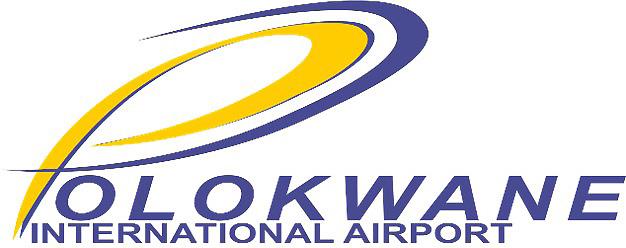
The Gateway Airport Authority Limited has ambitious plans for Limpopo’s most important airport, writes Mokgadi
W

With the appointment of a new management team, a focus on restoration and improvements in infrastructure, the new face of Polokwane International Airport (PIA) is rapidly taking shape.
PIA is situated 9km north of the City of Polokwane and like some of the more-established airports in South Africa, it was previously an airforce base. The Limpopo Provincial Government took ownership of the converted facility in 1995. The Gateway Airport Authority Limited (GAAL) manages and operates the airport, together with other selected airports entrusted to the Limpopo Provincial Government.
The Limpopo government taking over the airport was the start of its journey towards a competitive civil-aviation infrastructure to be reckoned with. Although troubled with infrastructure failures and non-compliance issues in the past, the airport is now on its way to full recovery and becoming a true destination of choice for both passenger and cargo traffic.
The board quickly realised it was critical to appoint new senior management and fill critical key positions to enable maintenance of infrastructure and improving compliance with SACAA and ICAO requirements.
INFRASTRUCTURE IMPROVEMENTS
Polokwane International Airport is equipped with two runways sufficient to accommodate large aircraft of the size of Boeing 747 and Airbus A346.
In the medium term, GAAL is planning to refurbish both runways 05/23 and 01/19 to improve the friction and strength of the runways. Runway 01/19 will also be extended by 1km to complete and join it with the taxiway and threshold that has already been built in anticipation of this extension. This will allow the airport to handle heavy cargo operations, which is the ultimate business objective set for 2024-2029.
The airport has an apron facility of 74 000 square metres of parking space and is able to accommodate nine B747-type aircraft and 13 B737/A321-type aircraft. Furthermore, the airport has 16 hangers of 540m² and one 6 450m² hangar, with the immediate potential of setting up multi-functional cargo facility.
Runway 05/23 is equipped with a runway-lighting system and it will soon be converted from halogen to LED lights, thereby reducing maintenance costs and improving reliability and availability.
This instrument runway is also equipped with a simple approach-lighting system to complement the RNAV procedure and to enable access to the airport in bad weather conditions. Plans are at an advanced stage to replace the current Precision
Matli, Acting CEO.

Approach Path Indicator (PAPI) system with an advanced LED PAPI system. This system enables the pilots to observe their approach path towards the runway and is critical in ensuring a safe landing. Compared to the old system, the new LED PAPI system has lower power consumption, clearer white/ red transition and an electronic angle display, thereby enhancing monitoring by ground electrical personnel without requiring sophisticated additional systems, a reduced calibration frequency and fail-safe built-in functionality to ensure out-of-tolerance automatic switch off.
Availability of aviation fuel is critical for airport operations. Currently the airport has outsourced the provision of JETA1 and AVGAS fuel. Furthermore, GAAL is in the process of refurbishing the one-million-litre-JetA1 Fuel Farm, with an associated 30 000-litre-AVGAS facility at the airport.

Airport Rescue and Fighting protection level is currently at category 7, meaning the airport can regularly service aircraft in the categories B737-800 and A320. GAAL has appointed a service provider to repair two of its additional major trucks, which will guarantee availability of the protection level ARFFS CAT 7 and enable the airport to meet the requirements of CAT 9, similar to airports such as Cape Town and OR Tambo.
PROPELLING AVIATION ACTIVITIES
Aviation activities are the core and heart of the airport and propelling and regenerating these activities talks to the existence and survival of an airport. Current aviation activity in both passenger and cargo terms is low. Short-term interventions which are in progress include:
• Promoting the airport as a diversion airport for major domestic and international operators from June 2023.
• Introduction of cargo operations from July 2023.
• Promoting the air service between Polokwane International and OR Tambo International Airports from June 2023 to improve number of passengers using the airport.
• Introducing an additional route between Polokwane and Cape Town by March 2024.
28
A progressive and true destination choice for passenger and cargo operations
PROFILE
Mokgadi Matli, Acting CEO, GAAL
Pioneering convenient air travel
GAAL is mandated to manage Polokwane International and other designated airports in the Limpopo Province entrusted to the Limpopo Provincial Government in compliance with various legislative and administrative acts such as the South African Civil Aviation Authority (SACAA) and the International Civil Aviation Organization’s SARPS.

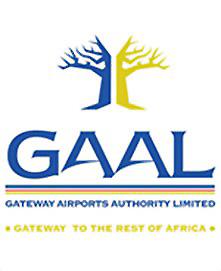
The entity is charged with managing and developing Limpopo airports to provide ease of access to our province for tourism and trade.
VISION
To lead growth of the aviation industry in Limpopo
MISSION
+ To operate and develop public airports within the province of Limpopo
+ To create and develop hub-and-spoke flight operations network in Limpopo to feed PIA
+ To develop PIA as the hub of SADC region and the north of South Africa
+ To collaborate with our key stakeholders to stimulate economic and social development for the people of Limpopo
Polokwane International Airport is ideally located as
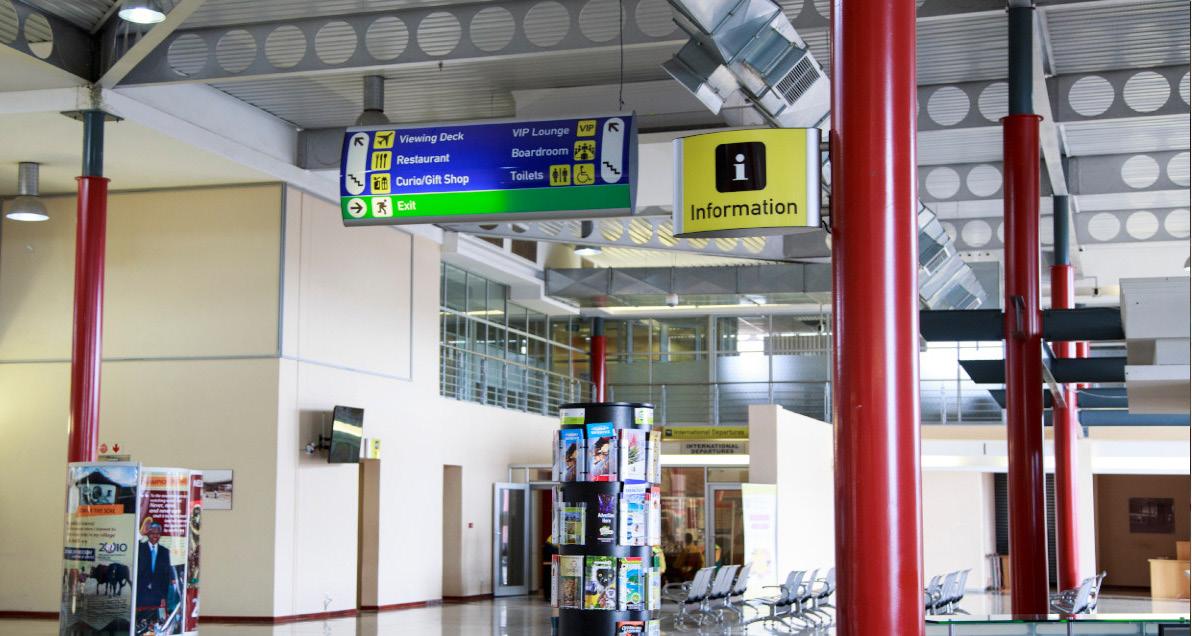
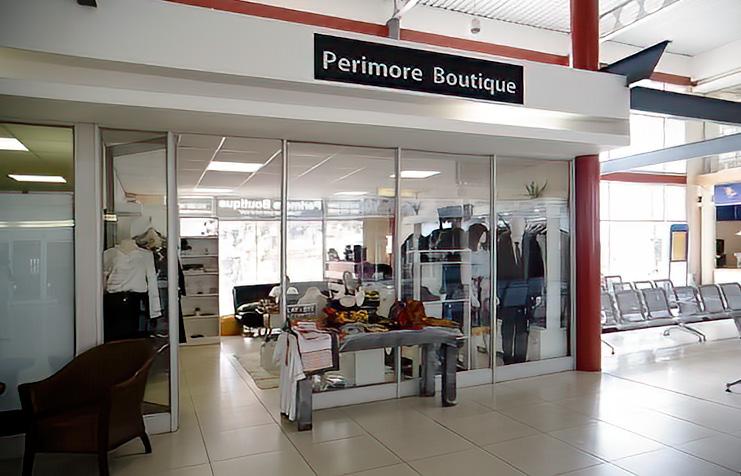
+ a hub for the SADC region
+ a transport-shipment centre
+ a diversion airport
+ a first stop for tourists visiting Limpopo
Polokwane International Airport has
+ two runways big enough for Boeing 747 and Airbus A346
+ 17 hangars
+ Category 7 licence
+ 400 parking bays
+ Conference facilities
+ Clinic and emergency centre
+ Shops
CONTACT GAAL
Polokwane International Airport
Gateway Drive, Polokwane
Tel: 015 288 0122
Website: www.gaal.co.za
Photo by Pixabay
AFRICAN MOTORBIKES ARE GOING ELECTRIC
A new report by Powering Renewable Energy Opportunities highlights the innovations that are super-charging this sector.
Electric motorcycles are set to be a dominant force in Sub-Saharan Africa’s sustainable mobility transformation, but continued investment in startups tackling barriers across the value chain will be critical to maximise the full potential, says a report recently released by the Powering Renewable Energy Opportunities (PREO) programme.
Two-wheelers are quicker and more easily manoeuvrable than four-wheeled vehicles, especially across Sub-Saharan Africa where roads are often poor. Motorcycles also provide stable income opportunities. The Charging Ahead – Accelerating e-mobility in Africa report from PREO outlines the market opportunity for e-motorcycles to become a driving force in the African e-mobility sector as, according to analysis by Mordor Intelligence, the market for motorcycles in Africa was worth $3.6-billion in 2021 and is projected to grow to $5-billion by 2027.
However, to accelerate progress in the e-mobility sector and meet the demands of a rapidly expanding customer base for two-wheelers, there are a number of challenges that need to be addressed. These include improving the availability of durable hardware, reliable charging infrastructure and access to high-quality battery solutions.
According to industry estimates, more than 90% of electric motorcycles sold in Sub-Saharan Africa are imported from China and India and are not built for African conditions. Poor grid infrastructure means baseline electricity access is not reliable enough to support renewable battery recharge networks and the electricity supply is weak. In addition, high-quality battery suppliers prioritise global buyers able to order at volume, which leaves small startups out of the picture.
The report examines how three PREO-supported companies, Roam (previously Opibus), Mobile Power and Zembo, are successfully addressing each of these barriers and together are providing the solutions needed to support an enabling ecosystem to accelerate progress across the entire e-mobility sector.
DURABLE HARDWARE
Roam is a Swedish/Kenyan company that manufactures robust electric motorcycles in Kenya. The company is demonstrating that with the support of local manufacturing and assembly, the final price of electric motorcycles can be lowered to compete with internal combustion engine vehicles while also customising the product to local conditions. Roam has now acquired the capacity to fully design the vehicles and manufacture 35% of them in-house with a goal to reach 70% in the next three to five years.
The company plans to expand beyond Kenya to other African markets through strategic partnerships, raise $17.5-million in equity and debt for working capital and hopes to supply Uber with 3 000 electric motorcycles for its delivery services across Sub-Saharan Africa.
RELIABLE CHARGING INFRASTRUCTURE
Ugandan company Zembo has developed a solution to enable the roll-out of e-motorcycles in areas with weak and unreliable access to electricity by using solar energy to charge the batteries.


In Uganda, Zembo operates 27 battery-swap stations for electric motorcycles, considered one of the largest networks in the region. It sells motorcycles to taxi operators on a pay-as-you-go basis and provides batteries-as-a-service through its battery-swap network. Costs for personnel and rent make up 73% of the monthly cost of operating a swap station and these costs are fixed, delaying profitability and
Zembo’s scale-up strategy involves expanding its network using risk-sharing mechanisms such as franchise models and reducing personnel costs by deploying automatic swap cabinets. The company is also installing solar-power solutions for off-grid areas and hybrid power for on-grid areas with weak or unreliable grids. This will enable batteries to be charged even in areas that are not on the grid and during grid blackouts. Zembo plans to expand its fleet to more than 2 000 motorcycles and 60 swap stations by 2025.
HIGH-QUALITY BATTERY SOLUTIONS
Mobile Power operates in Sierra Leone, Liberia, the Democratic Republic of the Congo and Nigeria and is tackling the scarcity of highquality battery technologies for small-scale businesses. The company has developed clean energy storage products (lithium-ion batteries) that it offers to businesses and individuals through a rental model. Since 2017, Mobile Power has grown its rental business to 500 000 rentals every month and is gaining 2 000 new customers every week at its peak growth periods.
Roam wants to supply Uber with 3 000 vehicles. Credit: PREO
E
30
Mobile Power is now replicating its rental model in the mobility sector and generator replacement sector by leveraging the same technology components: batteries, battery management systems and battery charging hubs. The company has now reached a stage whereby it can manufacture robust batteries tailored to African conditions at scale for its in-house use and satisfy the demand of its electric mobility peers. Mobile Power’s pay-per-use battery-swap model enables customers to access the service based on their needs.
Jon Lane, PREO Programme Director, comments: “Investing in e-motorcycles provides a path to more sustainable and equitable growth across African communities and addresses the urgent issue of climate change. Through our work with several startups, we have identified opportunities for a full ecosystem of solutions that address challenges across the value chain. We hope this report demonstrates the impressive progress being made by companies in the e-mobility sector and will act as a call for investors, policymakers and partners to engage and collaborate to help meet the scale of the challenge.”


Jono West, co-founder and Chair of Mobile Power, comments: “PREO’s support has been incredibly valuable to us for de-risking our battery technology and business model. It has enabled us to grow and increase the rate of scale for the e-mobility business and capture learnings that now form the basis of future technology solutions we have in the pipeline, even beyond e-mobility. As a result of this PREO project, we are now in discussions with several new partners across the value chain, which will be announced in due course.”
Étienne Saint-Sernin, co-founder of Zembo, says: “We’ve already proved that our business model is profitable in urban on-grid areas. Now, this PREO-co-funded project will give us the opportunity to prove that our solar-powered solution is viable and replicable in off-grid areas as well. We’ll then be in a strong position to unlock private investments to expand to other African countries.”
Filip Lövström, co-founder and Chief Executive Officer of Roam, adds: “With the support from PREO we were able to accelerate and validate our product-


market fit, refine our business models and design our next-generation electric motorcycle that is now ready to scale. PREO’s grant subsidised our early-stage production costs for pilots, and ultimately helped us reach commercialisation of a product that puts more earnings into end-users’ pockets and creates a positive environmental impact.”
ABOUT PREO
The Powering Renewable Energy Opportunities Programme stimulates renewable energy demand in Africa by providing highrisk grant capital, technical assistance and knowledge dissemination services to a portfolio of companies in a range of sectors. In this way it creates sustainable jobs and improves livelihoods through economic growth and empowering women. To date, it has supported 27 productive-use-of-energy enterprises across 11 countries in Sub-Saharan Africa, four of which are in the e-mobility sector. PREO is supported by the IKEA Foundation and UK Aid via the Transforming Energy Access platform and delivered by the Carbon Trust and Energy 4 Impact.
Mobile Power’s pay-per-use battery-swap model enables customers to access the service based on their needs. Credit: PREO
The market for motorcycles in Africa is projected to grow to $5-billion by 2027.
31 E-MOBILITY
Credit: PREO
MEET THE WOMAN LEADING CCBSA’S LARGEST LOGISTICS TERRITORY
Liesel Dorothy is the Regional Logistics Manager for Coca-Cola Beverages South Africa’s (CCBSA’s) Coastal Region. This is the largest region in the company, covering KwaZulu-Natal, Eastern Cape and parts of the Western Cape Province. With five warehouses and a fleet of 193 trucks and 103 forklifts, Liesel is leading the people in her team who run this dynamic operations environment. We chatted to her to understand her role better and how she leads her team, as well as the culture of the company.



BIOGRAPHY
Liesel was born and educated in Gqeberha. This is also where she spent most of her working career. In 2021 she joined CCBSA as an Executive Assistant for Coastal Region Logistics where she was exposed to strategy execution, risk management and mitigation, operational execution, financial management of operations and leadership and execution of projects in the region. In February 2023, Liesel was appointed to the CCBSA Regional Logistics Manager role. She is known to be a confident yet humble leader, who mobilises her team to excel in execution and to transform with agility.
Qualifications: Master of Business Administration (cum laude), Post Graduate Diploma in Business Administration (cum laude), Bachelor of Laws Degree, Bachelor of Commerce (Acc) Degree.
Skills: Communication, people development and lean manufacturing.
Working experience: General Motors South Africa – Supply Chain Graduate, Inventory Analyst, Logistics Controller, Supply Chain Planner, Material Control Supervisor (Local material), Material Control Supervisor (Imported material) and Material Control Manager. Schnellecke South Africa –Regional Project Manager. Faurecia Automotive – Production Control and Logistics Manager. RCL Foods (Vector Logistics) – Regional Logistics Manager (Eastern Cape and George).
Notable achievements: First South African recipient of the General Motors Transformers Award in 2013. Runner-up for Logistics Depot of the Year in 2022 for CCBSA.
Liesel Dorothy, Regional Logistics Manager, CCBSA Coastal Region.
32
DID YOU KNOW?
As part of CCBSA’s commitment to diversity and inclusion, the company has increased black female representation in leadership roles and senior management, from 89% recognition in 2020 to 94% recognition in 2021. The company is committed to building a culture and ethos that is inclusive, diverse and reflective of the demographics of South Africa to ensure the long-term growth of the organisation. CCBSA wants to embody the spirit of the country and be a truly proudly South African company that has embedded transformation and economic inclusion in its operations.


TELL US MORE ABOUT WHAT YOUR ROLE ENTAILS. In a nutshell, my role involves the movement of the CCBSA products from the time of manufacture to the customer delivery and every touch point in between, with the aim of doing it as efficiently as possible.

WHAT HAS BEEN A HIGHLIGHT IN THIS ROLE SO FAR?
The highlight has been my team’s ability to pull together to overcome the challenges we’ve been experiencing this year as we transitioned to a new enterprise-resource-planning system. We’ve had several challenges thrown at us, sometimes at odd hours of the day and often with little warning. The team has done exceedingly well to overcome them.
HOW DO YOU LEAD PEOPLE TO IMPROVE PERFORMANCE?
I encourage self-development, so I’m keen on decision-making being made at all levels. In this way we foster learnings from the stuff we get right and the stuff we get wrong. The only way for people to learn is to apply themselves and to try. The more people get things right, the more confident they become and with that they become better leaders.
WHAT FACTORS IMPACT A WOMAN’S ABILITY TO LEAD OTHERS?
A company’s culture is a significant factor. CCBSA aims to create shared value for the business and our people. And by value, I mean more than just money but rather the chance for people to belong and thrive, no matter one’s race or gender. This supportive atmosphere creates a positive impact throughout the organisation — with employees not just accepting females in leadership roles, but employees who now embrace, value and celebrate female leaders.
WHAT DO YOU ADMIRE MOST ABOUT YOUR LOGISTICS TEAM? Their competitiveness — they have this deep desire to always get things done, no matter what.

LEADERSHIP ROLES CAN BE DEMANDING AND TAXING ON THE BODY AND MIND. WHAT ARE YOU DOING TO KEEP YOURSELF FIT, BOTH MENTALLY AND PHYSICALLY?
I have a passion for sports, especially field hockey and running and believe in the concept of healthy body, healthy mind. I also take breaks from screen time (including phones) and get fresh air. My family and I have also moved to Durban this year, so we’ve been spending time outdoors, travelling and exploring the local nature and wildlife areas.
33 LEADERSHIP
ARE SPECIAL ECONOMIC ZONES THE KEY TO AFRICAN GROWTH?

Nations across the continent are increasingly investing in economic zones as a way to promote manufacturing, boost industrial production and increase exports.
December 2022 saw the celebration of 30 years of Special Economic Zones in Nigeria.
A joint event was hosted by the African Union (AU) and the Africa Economic Zones Organization (AEZO) under the theme, “African Special Economic Zones: Engine for Resilience and Accelerator for Sustainable Industrial Value Chains Development.” The meeting doubled as the 5th African Union Symposium on Special Economic Zones and the 7th edition of the AEZO Annual Meeting and was held in the Nigerian capital, Abuja.
An indication of the importance of the event is seen in the other partner organisations: United Nations Conference on Trade and Development (UNCTAD), the United Nations Industrial Development Organization (UNIDO), the African Development Bank (AfDB) and the German Agency for International Cooperation (GIZ).
The first African Special Economic Zone (SEZ) was launched in 1970 by Mauritius and by the end of decade both Ghana and Senegal had followed suit. According to African Economic Zones Outlook (2021), more than 200 SEZs are currently operational in 47 African countries while a further 73 projects. Nearly 150 000 hectares is devoted to SEZs on the continent while over $2.6-billion in investments has been made into a wide variety of sectors such as agro-processing, manufacturing and services.
Nigeria has moved on rapidly from that first foray into SEZs. Today there are six zones established and run by the federal government that serve as exportprocessing zones: Calabar Free Trade Zone (CFTZ), Kano Free Trade Zone (KFTZ), LADOL Free Zone, ALSCON Expert Processing Zone, Onne Oil And
By John Young
Gas Free Zone and the Maigatari Border Free Zone. Altogether, licences for 52 free trade zones have been granted by the Nigeria Export Processing Zones Authority (NEPZA) but not all of them are active. Lagos has secured 18 of the licences and the Lagos Free Zone, administered by Singapore-based Tolaram, and the Eko Atlantic Free Zone are among the best known of these.
Kenya is another country with a strong focus on SEZs. A Special Economic Zones Authority (SEZA) oversees 14 SEZs in eight regions. The recently launched Konza Technopolis outside Nairobi caters to the information, communications and technology (ICT) sector.
Although the term Special Economic Zone is widely used, a number of different types of economic zones are in operation across the continent. These include SEZs, Industrial Parks (IPs), Free Trade Zones (FTZs), Export Processing Zones (EPZs) and other zones. This is why the continental body is called the Africa Economic Zones Organization.
The goals of SEZs vary from place to place, but three main motivations can be identified: to promote industrialisation or beneficiation of local resources; to boost a particular sector that has additional potential or which is not performing to expectations; to bolster and grow local economies and small, medium and microenterprises (SMMEs).
INDUSTRIALISATION
By locating SEZs strategically in particular economic corridors and near agricultural or mineral resources, planners aim to promote agro-processing or mineral beneficiation.
D
34
Textile manufacturing centre, Benjamin William Mkapa SEZ at Dar es Salaam. The BWM SEZ was the first government-owned industrial park. Credit: Export Processing Zones Authority (Tanzania).
Some zones are targeting energy, and more specifically renewable energy. In Egypt, the Suez Canal Economic Zone (SCZONE) in 2022 signed a preliminary agreement with Indian company ReNEW Power for 220 000 tons of green hydrogen production, with an investment value of approximately $8-billion. This was the eighth such agreement that SCZONE has so far signed with the aim of localising and manufacturing green fuels. Some of the other partners include Maersk, Scatec and EDF Renewables.
SECTOR ENHANCEMENT
It is to boost a particular sector that the South African province KwaZuluNatal has announced plans to create a third economic zone. The Dube TradePort SEZ is located at the main regional airport and naturally deals in logistics and the import and export of agricultural products but also has manufacturing elements, while the port-based Richards Bay Industrial Development Zone plays to its strengths as a deepsea port and is intended to become an energy hub. The new SEZ will have a specific focus on the clothing and textile sector and be located in towns like Newcastle and Ladysmith where enterprises in those sectors already exist.


A focus on the automotive sector defines Morocco’s Tangier Automotive City and the Tshwane Automotive SEZ in South Africa.
SUPPORTING SMMES
In Mozambique a mining company, Kenmare Moma Mining, has helped establish the MozParks Topuito Agro-Industrial Park in Nampula Province as an innovation centre to support startups in getting access to the value chain. MozParks, the other partner in the venture, is the developer and operator of agro-industrial parks. As a recent AEZO newsletter noted: “In emerging markets, where they account for 90% of all firms and 50% of all jobs created, SMEs constitute the backbone of the global economy. The impact is greater in Africa, where SMEs employ almost 80% of the labour force on the continent. Although SMEs are a substantial economic force, there is still a lot of room for expansion.”
AFRICA AND THE WORLD
The AEZO is a continental association which was founded in 2015 and now has 82 members representing 42 African countries. In 2022, the process of economic zones and their representative bodies working together went global. In May 2022, UNCTAD met with seven global, regional and national associations representing over 7 000 SEZs to launch a global alliance. The Global Alliance of Special Economic Zones (GASEZ) aims to drive the modernisation of these zones across the world and maximise their contribution to the UN Sustainable Development Goals (SDGs). UNCTAD Secretary-General Rebeca Grynspan said, “The United Nations 2030 Agenda for Sustainable Development provides an opportunity for Special Economic Zones to attract investment by putting SDGs at the forefront of their value proposition.”
 Carnegie Mellon University Africa has relocated to a site within Kigali Innovation City, a zone which aims to promote digital innovation and entrepreneurial activity in Rwanda. Credit: CMU-Africa
Carnegie Mellon University Africa has relocated to a site within Kigali Innovation City, a zone which aims to promote digital innovation and entrepreneurial activity in Rwanda. Credit: CMU-Africa
35 SPECIAL ECONOMIC ZONES
Atlantis SEZ north of Cape Town is targeting industries in the green economy. GRI Wind Steel South Africa is making wind towers in the blue building. Credit: ASEZ
INSURANCE PAYOUTS HELP DROUGHT RELIEF
Two West African countries have received insurance payouts from the African Risk Capacity (ARC) Group, another indication of
As the West and Central Africa region counts the cost of the recurring drought events that have swept through parts of the region, particularly during the 2022 agricultural season, the ARC Group has made insurance payouts to the Togolese Republic and the Republic of The Gambia
The participation of both countries in the 2022/23 ARC risk pool enabled the countries to transfer risks onto international markets via ARC Limited (Ltd), a mutual insurer owned by the African member states and the commercial affiliate of the ARC Group. ARC Ltd has been providing risk pooling services to African Union (AU) member states since 2014, and these payouts make another strong case for the role of parametric insurance in building a country’s resilience to climate-induced threats.
The participation of both nations in this ARC risk pool was made possible by an insurance premium paid in part by the government, with premium
support contribution from the Africa Disaster Risk Financing Programme, a framework developed as a collaboration between the African Development Bank and the ARC Group, funded by the Agence Française de Développement (ADRiFi AFD).
ARC’s unique value proposition enables it to provide innovative financial mechanisms to pool the risk of participating African countries and transfer it to international reinsurance markets to strengthen members’ Disaster Risk Management (DRM) systems.
TOGOLESE REPUBLIC
An insurance payout of $2.5-million has been made to the government of the Togolese Republic to honour the conditions of the sovereign insurance policy taken out by the country to cover this risk. In line with its mandate to work with AU member states to help them to better plan, prepare and respond to climateinduced threats and disease outbreaks, ARC has
been working with Togo since 2017 to strengthen its response capacities to drought events.
The Togolese Republic first participated in ARC risk pools for drought during the 2019/20 agricultural season.

“It’s been a great honour to work with the Togolese Republic on its journey to build the country’s resilience to the threats paused by drought events. This payout will reach the most vulnerable, and is a confirmation of the need for countries to proactively manage their risks in the face of growing climate threats,” said Lesley Ndlovu, CEO of ARC Ltd.
Togo’s 2022/23 agricultural season was marked by pockets of intermittent dry spells in the north, particularly during the sowing window. The dry spells that lasted longer than 10 days caused a reduction in yield and agricultural production at the end of the season. According to the AfricaRisk View, ARC’s technical tool for monitoring the season, 689 267 people were affected in the prefectures of Savannes, Kara and Central.
“The ARC mechanism is designed to support AU member states in their fight against climateinduced threats and disease outbreaks and to provide country-specific solutions based on needs. We are happy that Togo is taking action to protect vulnerable populations. We look forward to a continued relationship with Togo as we intensify efforts to strengthen response capacities and preparedness,” said Ibrahima Cheikh Diong, UN Assistant Secretary General and ARC Group Director General.
To implement planned payout activities, the government of the Togolese Republic will be guided by a pre-agreed Final Implementation Plan developed as part of the ARC contingency planning process that is facilitated by ARC Agency, which is responsible for working with member states to ensure their preparedness to manage such disaster events. Funds received will be used to implement a mobile-money cash-transfer response where 9 920 households will receive $71.4 every month for three months to help them cope with the impact of the drought. Not only will this cash transfer contribute to food security for beneficiary households but it will
A
the importance of building financial resilience into efforts to fight threats posed by extreme weather conditions.
36
The ARC aims to build resilience in African agriculture. Credit: ARC
also prevent them from resorting to negative coping mechanisms such as selling off productive assets.
To reach beneficiaries efficiently, the government will be supported by various stakeholder groups, including the National Agency for Civil Protection (NACP), the Agricultural Statistics, Information and Documentation Directorate (DSID), the Ministry of Agriculture, Livestock and Fishery Production (MAPAH), None-Governmental Organisations, Civil Society Organisations and the local government.
REPUBLIC OF THE GAMBIA
The government of the Republic of The Gambia has received an insurance payout of $187 641. The funds come at a time when the country is facing severe food insecurity and will support recovery efforts from the recent drought event and help the government reach the most affected populations.
As drought conditions spread across West Africa’s Sahel region, The Gambia was among the most affected during the 2022/23 agricultural season. This led to late planting in the districts of Badibou, Jarra West, Kiang North Bank West and Upper River North. According to the AfricaRisk View, ARC’s technical software for early warning and monitoring, a total of 153 902 people were affected, triggering the payout.
“We are thrilled to be making this payout to the Government of the Republic of the Gambia and look forward to seeing the difference it will make in the lives of affected communities. ARC has been working closely with the country’s Disaster Risk Management structures to strengthen its response capacities to drought and this payout is the culmination of these efforts,” said Lesley Ndlovu, CEO of ARC Ltd. “The payout will go a long way towards facilitating timely response on the ground, especially given the existing contingency plans to guide the implementation response.” Through the Replica programme, a strategy which allows humanitarian actors to take out a policy on behalf of a country, Replica partner, the World Food Programme (WPF), which took out a policy on behalf of The Gambia, also received a payout of the same amount. This payout will also be
used to implement recovery activities in the country and complement other efforts.
The Final Implementation Plan, developed from ARC’s contingency planning process, will guide the use of the payout, and assist 17 058 people in the affected regions. The Republic of Gambia has chosen the use of a cash transfer to be managed through the National Disaster Authority (NDMA) to reach the most vulnerable. The WFP will use the disbursement received in the same manner. In addition to abating increased food insecurity, the payout will also help to bolster the local cash economy and allow households a chance to recover.
Commenting on the payout, UN Assistant Secretary-General and ARC Group Director General, Ibrahima Cheikh Diong, reiterated the value of the ARC intervention, “The impact of disaster events goes beyond the immediate socio-economic costs and can reverse development gains that Africa has made. In the absence of instruments such as ARC, disaster events worsen food insecurity and can easily trap vulnerable populations into perpetual cycles of poverty.” He continued, “The effort from the Republic of The Gambia to build the country’s resilience is commendable. The government has continually demonstrated its willingness to fight the scourge of climate change and protect the lives
and livelihoods of its people.”The ARC facility combines four critical elements of disaster risk management: early warning, contingency planning, risk pooling and risk transfer to create a powerful value proposition and has proven to be an effective tool to improve a government’s preparedness to manage disaster events. Combined, this offering provides participating member states with access to immediate funds for early and planned responses to support vulnerable populations while strengthening response capacities.
ABOUT ARC LTD
African Risk Capacity Limited (ARC Ltd) is a financial affiliate of the African Risk Capacity Group, a specialised agency of the AU, an initiative designed to improve current responses to climate-related food security emergencies.

ARC Ltd is a mutual insurance facility comprised of its members, which have included Kenya, Mauritania, Niger, Senegal, Mali, Malawi, The Gambia, Burkina Faso, Chad, Zimbabwe, Togo, Madagascar and Zambia.
The membership also includes its capital contributors who have provided premium subsidies, including USAID, FCDO, SDC, KFW/BMZ, IFAD, AFDB, WFP and STARTNETWORK.

37 AGRICULTURE
West and Central Africa have been experiencing severe droughts. Credit: YODA Adaman on Unsplash
ENTREPRENEURS IN THE BLUE ECONOMY ARE TACKLING WASTE AND GENERATING ENERGY
African Impact Accelerator welcomes its fourth cohort of ocean-minded entrepreneurs. OceanHub Africa, which runs the accelerator, is promoting small businesses that have the potential to tackle waste and generate energy, using Africa’s largely untapped ocean resources.
During the course of two months in 2023, OceanHub Africa (OHA) received 188 applications from 19 countries. From this group, OHA identified eight ocean-minded startups that have been carefully selected for the fourth cohort of a support progamme for SMMEs and startups, representing a diverse range of impactful solutions. OHA is also proud to acknowledge that this cohort showcases a substantial portion of startups led and owned by women.
THE SELECTED STARTUPS ARE:
• Akili (South Africa) tackles the challenge of plastic and e-waste by repurposing components from broken laptops and transforming PET bottles into recycled 3D filament (rPET) to create entry-level computers.

• D-Olivette (Nigeria) converts household waste into clean energy, organic fertiliser and reusable water with its innovative digesters and accessories.

• Healthy Seaweed Company (Tanzania) produces high-quality seaweedbased food to increase local consumption and create markets for female seaweed farmers.

• Kuza Freezer (Kenya) provides innovative and low-cost solar-powered freezers to small-scale businesses in the fish value and supply chains, reducing postharvest losses and increasing daily income sustainably.


• Reef Pulse (Réunion) develops decision-support solutions for coral reef conservation stakeholders through non-intrusive coral reef monitoring using hydrophones.

• ReNile (Egypt) offers end-to-end solutions for smart farming, focusing on water, air and soil-quality management with online application models for farming.
• Sealife Organics Ltd (Mauritius) utilises seaweed and green waste to create affordable and organic agricultural products.

• Tunisa Baits (Tunisa) uses marine worms to present an alternative and sustainable source of protein feed for aquaculture industries.
• In the course of 2023, these startups will receive extensive support from OHA’s accelerator team and have access to a wide range of networks, services and resources.
D
38
The Healthy Seaweed Company team; A solar-powered freezer keeps products cold on a tricycle, Kuza Freezer; D-Olivette bio-gas holder; Sealife Organics fertiliser bags; ReNile technology supports smart farming; Broken laptops and PET bottles are repurposed into entry-level computers by Akili; Tunisa Baits uses marine worms for protein.
ABOUT OCEANHUB AFRICA
OceanHub Africa is a non-profit ocean-impact catalyst supporting oceanimpact ventures through acceleration programmes and leadership of a global ocean-minded ecosystem to nurture an environmentally conscious and profitable economy. The organisation’s mission is to connect, inspire and support entrepreneurs, investors, researchers, businesses and other stakeholders to accelerate the development and adoption of new sustainable ocean solutions across Africa.
Acceleration Programme
Personal, product and business developments for startup market and investor readiness. OceanHub Africa’s eight-month online incubation programme supports up to 10 of Africa’s most promising impact-for-profit startups focused on preserving and restoring the health of the ocean, while developing equitable and sustainable livelihoods.The accelerator is on a mission to support ocean-minded startups with the express aim of nurturing an environmentally conscious and profitable economy that effectively mitigates the effects of global warming as well as the overexploitation and pollution of the ocean. Leveraging its highly qualified network of stakeholders and facilitators, it will deliver to the accelerated startups a programme that seeks out sustainable pathways yielding stable profits (ROIs) and avenues for scalable growth throughout Africa.
Blue Economy and Entrepreneurship Consulting
We provide tools and insights to policy and decision-makers to unlock the local Blue Economy while developing knowledge to motivate finance support for African Blue Growth.
Policy Support
Providing tools and insights to policy and decision-makers to unlock local, sustainable, equitable Blue Economy. Scoping studies, road maps and impact reports form part of the support offered.
Finance Support
Developing knowledge and understanding to motivate and channel funding.
Startup Support
There are four aspects to the startup programme:
• Coastal community programmes: We support with programme design and implementation for low-tech high-social impact Blue Entrepreneurship incubation. We focus on capacity building and resource management. Public examples of coastal community programmes we work and have worked with are Pemba Seascape (Tanzania) and Pemba Bay Seascape (Mozambique).
• Industry focus programmes: Sponsored blue entrepreneurship incubation programmes with a clear focus within the African Blue Economy. Examples of previous work include Circular Plastic Economy and Alternatives to Seabed Mining.
• Soft landing: Services to ocean-minded businesses scaling up in Africa: business development support into new markets; product/service adaptation to African markets for expansion; fundraising for growth.
• Fundraising and post development: Individual growth support outside OHA’s acceleration programme is offered.

Ecosystem Support
Thought leadership, matchmaking and convening within the African Blue Economy. Through our multiple ecosystem programmes such as Ocean Innovation Africa, we aim to showcase development opportunities in the African Blue Economy and establish collaborations to drive its growth.
Great Blue Wall
A wall against biodiversity loss and climate change through the promotion and development of a grassroots regenerative Blue Economy in Africa.
• IUCN-led Great Blue Wall initiative is aimed at replicating the Great Green Wall initiative and raising an initial $1.5-billion to connect and protect a chain of seascapes in the Western Indian Ocean to further Blue Economy growth from grassroots to system level, for the benefits of people and the ocean.
• OceanHub Africa is a founding partner of the Great Blue Wall, establishing a connected network of Nature and People Positive Seascapes in the West Indian Ocean.
Ocean Innovation Africa
Inspire more entrepreneurs, entice more private investors and catalyse more partnerships.
• The purpose of the Ocean Innovation Africa Summit is to bring together the thought leaders and stakeholders of the Ocean Economy, demonstrate the economic viability of a decidedly more sustainable Blue Economy in Africa and inspire ocean-conscious entrepreneurs.
1000 Ocean Startups
A coalition to accelerate Ocean Impact Innovation endorsed by UN Ocean Decade. Protecting our Ocean requires a combination of awareness to change behaviours, new policies to create the framework for change and innovation to move into action. OceanHub Africa is a co-founding partner and steering committee member of the coalition as a member of the Advisory Network of the High Level Ocean Panel.
Global Ecosystem for Global Solution (GEOS)
The GEOS Program is a framework to catalyse the co-design, development and deployment of equitable, durable and scalable ocean-based solutions. GEOS brings together partners from around the globe with a common objective of generating knowledge and innovative solutions to address climate change and related ocean challenges. The Global Ecosystem for Ocean Solutions is an Ocean Visions Program endorsed by the United Nations Decade of Ocean Science for Sustainable Development.
Contact Details:
40 Dock Rd, Victoria & Alfred Waterfront, Cape Town 8001
Salena Fourie, Marketing Communication Lead
Emails: salena@oceanhub.africa | contact@oceanhub.africa
Websites: www.oceanhub.africa
ww.ocean-innovation.africa
www.1000oceanstartups.org
39 OCEANS ECONOMY
AFRICA’S GAS SECTOR IS BENEFITING FROM A GLOBAL SHIFT TOWARDS GREATER FLEXIBILITY
African gas has enormous potential, writes NJ Ayuk, Executive Chairman, African Energy Chamber. A host of new projects are coming on stream - and new countries are laying the groundwork for future production.
Africa may not possess the vast conventional gas resources of the Middle East or Russia and it may not be able to match the combined conventional and unconventional resources of North America. But it does have a sizeable amount of gas – at least 620-trillion cubic feet (tcf) or 17.56-trillion cubic meters (tcm) ‒ in proven reserves.
That’s more than enough to make Africa a key player in the global gas industry. In fact, it puts Africa in a position to influence the course of the industry, especially in light of long-term trends, including the shift to more flexible contract and delivery terms, along with more recent developments such as the Russia-Ukraine conflict.
The African Energy Chamber (AEC) has outlined our expectations for Africa’s gas sector in the “The State of African Energy Q1 2023 Report”, a new publication available for download on our website. The report covers our outlook on both upstream and downstream trends. Here, I’d like to offer some extra insight into our take on downstream developments – that is, on African liquefied natural gas (LNG) projects, including the countries currently dominating the industry and those preparing to make their presence known.
AFRICAN GAS TAKES THE STAGE
First, some background on Africa’s significant gas reserves. Prior to last year, those reserves had already drawn a significant amount of attention from international oil companies (IOCs) and other entities involved in the global gas trade. Indeed, they hadn’t just attracted attention; they had also attracted many billions of dollars in investment commitments from firms seeking access to large undeveloped gas deposits. IOCs were especially keen to enter offshore frontier provinces such as the Ruvuma basin, located off the coast of Mozambique, and the SenegalMauritania section of the MSGBC basin, located off the continent’s western coast.
These companies were interested in Africa not just because they wanted to add new assets to their portfolios. They also wanted to maximise their ability to serve
customers seeking gas on flexible terms. This was in line with the long-term shift towards greater flexibility in the gas sector, which is shedding its previous reliance on overland pipeline deliveries and long-term, large-scale contracts with pricing formulae linked to crude oil.
That is, IOCs wanted African gas precisely because they saw it as an additional means of supporting alternative supply arrangements involving spot market purchases and tanker shipments of LNG. But they shifted from wanting African gas to needing it in late February 2022, when conflict broke out between Russia and Ukraine. I continue to see this as a major topic requested by many to be on the agenda at African Energy Week taking place in Cape Town on 16-20 October.
AFRICAN GAS ENTERS THE SPOTLIGHT

This event – the Russian invasion of Ukraine – turned out to be a tipping point for Africa’s gas sector. The conflict sent global energy markets into a frenzy. This was partly because it led the US, the UK and the European Union to introduce embargoes on Russian crude oil supplies and partly because it sparked concerns about possible interruptions in Russian gas deliveries to Europe via pipeline. These concerns appeared to be valid, as Russian gas shipments to Europe became irregular last year despite the lack of a formal embargo such as the one imposed on oil.
The conflict also led the EU to step up its long-standing campaign to reduce dependence on Russian gas. Russia has long been the largest outside supplier of gas to the European market and up until the end of 2021, it was the source of at least a third of all volumes consumed within the EU. Uncertainty over these supplies heightened European interest in alternative supply sources and a significant portion of that interest settled on Africa.
As a result, some IOCs and EU member states began pursuing deals with North African states that were already in a position to export gas to Southern Europe via pipelines. The Italian energy major Eni, for example, signed a deal with Libya’s National Oil Corp (NOC) in January 2023 with the
A
40

41 AFRICAN GAS
Credit: Emmaus Studio on Unsplash
intent of investing $8-billion in a gas project that could export its output via the Greenstream pipeline. Eni has also added a number of gas-producing assets in Algeria, which has pipeline connections to both Italy and Spain, to its portfolio over the last year. However, some IOCs and EU states have focused on LNG-oriented endeavours that are in line with the growing flexibility of the global gas market. Italy is certainly set to benefit from Eni’s efforts on this front; over the last year, the company has arranged to import more LNG from two existing suppliers, Algeria and Angola, while also launching LNG exports from the Coral field offshore Mozambique and striking a deal with the Republic of Congo on its floating LNG (FLNG) project for the Marine XII fields. Eni is hardly alone. For example, the British giant BP said earlier this year that it anticipated making a final investment decision on the Yakaar-Teranga LNG project, which focuses on a group of fields off the coast of Senegal, before the end of 2023.
Meanwhile, Shell (UK) and Equinor (Norway) revealed in mid-May that they had finished negotiations on the $42-billion Tanzania LNG project and expected to sign a host-government agreement and production-sharing agreement soon.And there are plenty of other examples. Altogether, there have been enough new investment pledges made that Africa is now on track to see its total LNG export capacity rise from the current level of 80-million tons per year to around 110-million tons per year by 2030 and to more than 175-million tons per year by 2040.
AFRICA’S SLOWLY EXPANDING CAST OF LNG PLAYERS
But as the AEC explains in “The State of African Energy Q1 2023 Report”, these commitments are not going to change the picture for African LNG immediately. For the time being, the continent’s LNG business will continue to be dominated by the most established players: Egypt, Algeria and Nigeria, and to a lesser extent, Equatorial Guinea and Angola. Algeria and Egypt, our report notes, likely will maintain their existing LNG infrastructure capacity of about 29-million tons per year and 12.7-million tons per year respectively. Nigeria, meanwhile, will increase its LNG infrastructure capacity from 22-million tons per annum (MMtpa) to 30 MMtpa when it completes the Nigeria LNG (NLNG) Train 7 development, our report states.
The project by Nigeria LNG, a venture comprising the Nigerian National Petroleum Corporation, Shell, TotalEnergies and Eni, calls for the construction of an additional LNG train and a liquefaction unit for Nigeria’s six-train Bonny plant.

Train 7, which was about 32% complete in late 2022, is intended to meet local needs while increasing Nigerian LNG exports, diversifying Nigeria’s revenue portfolio and helping the country better capitalise on its 200 tcf of natural gas reserves. Nigerian maritime logistics company UTM Offshore, meanwhile, likely will nudge up Nigeria’s capacity to just over 31 MMtpa when it completes the FLNG project mentioned above. As of last November, the FLNG was expected to start operating in 2027.
BP is due to begin first-phase production at Grand Tortue/Ahmeyim block in late 2023, and Eni and its partners are set to expand LNG production at the Coral field offshore Mozambique. Indeed, the AEC expects these projects to help push African LNG exports up to the equivalent of 66-billion cubic metres this year, up 5% on 2022.
However, it’s going to take time to bring the rest of the new projects on stream and to build all these new onshore and offshore LNG plants. Tanzania LNG, for example, is not expected to begin production until 2028 and Eni’s Marine XII project will not reach its full capacity of three-million tons per year until late 2025.


TotalEnergies of France is not likely to begin commercial operations on the Mozambique LNG project before 2025 and the US giant ExxonMobil will need even more time to launch its Rovuma LNG project in Mozambique, since it has yet to reach the final investment decision stage.
This means that Algeria, Egypt and Nigeria will continue to account for the majority of the LNG coming out of Africa for the next few years and that the balance won’t really start to shift until the end of the decade. IOCs and EU states are currently laying the groundwork for expanding production and opening up new basins to support LNG projects, but it will take a few years for their efforts to pay off.
For more insights on LNG projects and other developments in the African gas sector, read our “The State of African Energy Q1 2023 Report.” It is available for download at www.EnergyChamber.org.
Distributed by APO Group.
Credit: APO Group
42
NJ Ayuk, Executive Chairman, African Energy Chamber
Dodoma is Tanzania’s new capital city. TANZANIA
Capital: Dodoma.

Other towns/cities: Dar es Salaam, Mwanza, Arusha, Mbeya, Morogoro.
Population: 65.6-million. (2023).
GDP, official exchange rate: $.60.6-billion (2021).
GDP per capita (PPP): $2 600 (2021).
Currency: Tanzanian .shilling.
Regional Economic Community: East African Community (EAC), Common Market for Eastern and Southern Africa (COMESA), Southern African Development Community (SADC).
Landmass: 947 300km².
Coastline: 1,424 km.
Resources: Coal, diamonds, gemstones, gold, natural gas, nickel, phosphates, tin. Bananas, cashew nuts, cassava, cloves, coffee, cotton, sisal, tea, cotton.
Main economic sectors: Tourism (Serengeti Plain, Mount Kilimanjaro). Agriculture, agro-processing, cement, fertiliser, mining, oil refining.
Other sectors: Apparel, hydropower shoes, wood products.

New sectors for investment: Protected areas have received significant investment in infrastructure: possibilities exist in eco-tourism, recreation facilities, trophy hunting and accommodation. Cruise ships. Gas and pipelines. Renewable energy.
Key projects: Standard Gauge Railway (SGR) project. The fifth phase, connecting Dar es Salaam to Mwanza on Lake Victoria, was launched in 2021. Rukwa Power Plant. Hoima-Tanga crude oil pipeline.
Chief exports: Cashew, coffee, cotton, gold, manufactured products.
Top export destinations: India, South Africa, Kenya, Switzerland, Belgium, Democratic Republic of the Congo, China.
Top import sources: India, China, UAE, Saudi Arabia, South Africa, Japan, Switzerland.
Main imports: Consumer goods, machinery and transportation equipment, industrial raw materials, crude oil.
Infrastructure: 10 airports with paved runways; two seaports at Dar es Salaam and Zanzibar; 4 097km of railways; 145 203km of roads (11 201km paved); pipelines: 311km gas, 891km oil, 8km refined products (2013); commercial trade with neighbouring countries via Lake Tanganyika, Lake Victoria, and Lake Nyasa (also known as Lake Malawi).
ICT: Mobile subscriptions per 100 inhabitants: 85 (2021).
Internet percentage of population: 32% (2021).
ICT Development Index 2017 (ITU) ranking: 165, 28th in Africa.
Climate: Coastal tropical region, temperate in the highlands. Kilimanjaro is the highest point in Africa and has glaciers. The country forms part of the Great Lakes region.

Religion: Christian account for about 60% and Muslim 35% but Zanzibar is almost wholly Muslim.
Modern history: Swahili, English and Arabic are the primary languages of the United Republic of Tanzania. Germany had to give up German East Africa after World War I. Soon after gaining independence from Britain, Tanganyika and Zanzibar united to form Tanzania in 1964, but Zanzibar continues to have a degree of autonomy. A new constitution ensured that the country has had multi-party politics since 1992. Samia Suluhu Hassan won election in 2021 as Tanzania’s first female president. Gas was discovered off the coast of Tanzania in 2012 and the new political leadership wants the country to become an exporter of liquid natural gas.
A long-awaited inauguration of a new capital city at the centrally located Dodoma finally came to fruition in 2023. A new international airport at Msalato, Dodoma, is under construction. Dar es Salaam retains its importance as a business, trade and logistics centre. The country is pursuing new investments in tourism, wood processing and other forestry-related sectors such as beekeeping.
43 COUNTRY PROFILE
Credit: Sergey Pesterev/Pexels
THE GAMBIA


Capital: Banjul.
Other towns/cities: Brikama, Kanifing, Basse.
Population: 2.4-million.
GDP official exchange rate: $1.7-billion (2019).
GDP per capita: $2 100 (2021).
Currency: Gambian dalasi.
Regional Economic Community: Community of Sahel-Saharan States (CEN–SAD), Economic Community of West African States (ECOWAS), Organisation of Islamic Cooperation.
Land mass: 11 300km².
Coastline: 80km. The country is on either side of the Gambia River and is surrounded by Senegal.

Resources: Clay, silica sand, titanium (rutile and ilmenite), tin and zircon. Peanuts, cassava, fish, groundnuts, maize, milk, millet, oil palm fruit, rice, sorghum.
Main economic sectors: Agriculture (peanuts), tourism, fish.
Other sectors: Beverages, clothing, hides, agricultural machinery assembly, woodworking, metalworking.

New sectors for investment: The National Development Plan aims to create a stronger private sector through investment in infrastructure, supported by increased roles for the commercial agricultural and tourism sectors. Climate resilience is important for urban and coastal areas.
Key projects: The World Bank is supporting a supplemental financing package related to fiscal management, energy and telecom reform. An existing Gambia Electricity Restoration and Modernization Project has helped to improve the performance of the National Water and Electric Company (NAWEC).
Chief exports: Cashews, lumber, refined petroleum, shellfish, scrap iron, fish, sesame seeds.
Top export destinations: China, India, Mali, Chile.
Top import sources: China, India, Senegal, Brazil.
Main imports: Rice, clothing, refined petroleum, raw sugar, palm oil.
Infrastructure: One airport, 2 977km of roads, of which 518km is paved; no railways. Banjul is the country’s seaport and ocean-going vessels can advance 190km up the Gambia River.
ICT: Mobile subscriptions per 100 inhabitants: 101 (2021).
Internet percentage of population: 33 (2021).
ICT Development Index 2017 (ITU) world ranking: 144, 16th in Africa.
Climate: Tropical with the hot, rainy season lasting from June to November. The country is in the floodplain of the Gambia River with low hills.
Religion: More than 90% Muslim.
Modern history: The smallest country on the continental landmass is also one of the most densely populated. Having been a part of both the great Mali and Songhai empires, the area was contested between Moroccans, French and Dutch traders before Britain established control in 1766.
The present boundaries of The Gambia were set by agreement between Britain and France in 1889.
In 1965 The Gambia gained independence. A confederation of Senegal and The Gambia existed from 1982 to 1989. Lieutenant Yahya Jammeh seized power in a coup in 1994 and he ruled in authoritarian fashion until he was ousted in an election by Adama Barrow. When it appeared that Jammeh would not accept the result, 7 000 soldiers, under the authority of the regional economic grouping, ECOWAS, massed on the border to force him into exile. Subsequent presidential elections took place on 4 December 2021 with the incumbent President Barrow winning a second term. The Gambia’s status as a multiparty democracy was also confirmed.

Tourism and commercial agriculture are the targets of growth policies.
44 COUNTRY PROFILE
Credit: Gambia Tourist Board

The Southern African Railways Association’s exclusive railway conference and exhibition will be held between 25-27 October 2023. Africa’s Exclusive Railway Event Hosted by African Railway Operators! SARARAIL & EXHIBITION CONFERENCE 25 - 27 October Gallagher Convention Centre Midrand, South Africa ENHANCING RAILWAY CAPACITY & QUALITY OF SERVICES THROUGH NEW OPERATING MODELS & PARTNERSHIPS FOR SEAMLESS REGIONAL INTEGRATION & TRADE Theme: Members of the Southern African Railways Association Sponsorship & exhibitor opportunities available. Register online as a conference delegate. info@sararailconference.comTel: 011 452 4991 www.sararailconference.com
cliffedekkerhofmeyr.com
FOCUSED
When insightful understanding combines with agile legal expertise and an instinct developed over generations has a singleminded focus, you want that focus to be collaborating on your business.
From vision to fruition

























































































































 JOHN YOUNG
Editor, Journal of African Business
JOHN YOUNG
Editor, Journal of African Business


















































 African traders in commodities like potatoes need digital networks to connect with markets and traders. Credit: Hardik Monga on Unsplash
Credit: Wirestock on Freepik
Unsplash
African traders in commodities like potatoes need digital networks to connect with markets and traders. Credit: Hardik Monga on Unsplash
Credit: Wirestock on Freepik
Unsplash



























































